
Distinguished Service Medals Issued for the President
by Admiral Emory Scott Land
Chairman, U.S. Maritime Commission
 The
President of the United States takes Pleasure in Presenting the Merchant Marine
Distinguished Service Medal to
The
President of the United States takes Pleasure in Presenting the Merchant Marine
Distinguished Service Medal to
James Byron Adams
Master of SS Daniel Huger 05/09/43
For distinguished
service beyond the line of duty.
His ship was docked at a North African port [Bone, Algeria] delivering her
cargo of war material--among which was 6,000 tons of high octane gasoline
in barrels--when the port was attacked by seventeen enemy bombing planes.
Two anti-personnel bombs struck the dock close to the port quarter of the
ship, and fragments of these bombs pierced two holds containing the gasoline.
Immediately fires were started between decks, and terrific explosions sprayed
burning fuel over half the ship. The crew fought the fires for forty-five
minutes, but, in spite of their heroic efforts, the flames were soon rising
two hundred feet into the air.
Only when the fire was obviously beyond control with the limited means at hand, and it was apparent that to stay longer aboard would result in possible sacrifice of his crew, did Captain Adams reluctantly order abandon ship. Shortly thereafter, fire boats and shore fire-fighting equipment arrived, and he, with a small party of volunteers from his crew, re-boarded the flaming ship in an attempt to control the fire with foamite. Although their lives were at stake every moment, he and his gallant men fought the fire for six hours eventually saving their ship and half of its vital cargo.
His indomitable determination to save his ship and its cargo, and his courageous and efficient leadership, were in keeping with the finest traditions of the United States Merchant Marine.
For the President
Admiral Emory Scott Land
Adams lived in Houston TX. Photo: Who's Who in the Maritime Industry
George B. Allen
Chief Mate on SS American 06/11/42
For heroism above and beyond the call of duty.
A torpedo struck the stern of his ship demolishing the rudder and propeller, blowing the steering engine through the top of the after house, and wrecking the crew's quarters. He formed a rescue party which, while the ship was sinking, went aft into the wreckage of the crew's quarters below the main deck and carried out five injured men trapped in the wreckage.
His extraordinary courage and disregard of his own safety in thus rescuing members of his crew will be an enduring inspiration to seamen of the United States Merchant Marine everywhere.
For the President
Admiral Emory Scott Land
Allen was a resident of Oakland CA.
Gustav Franke Alm
Carpenter on SS Angelina 10/17/42
For extraordinary heroism under unusual hazards.
His ship was traveling in a convoy which, due to extremely heavy seas and winds of gale force, had become scattered [Convoy ON-137]. Near midnight a torpedo struck and the ship sank rapidly. Alm, with about forty of his shipmates, managed to clear the ship in a lifeboat, but the seas were too great for the heavily-laden boat which swamped and capsized. A number of the men who were thrown into the icy waters managed to cling to the overturned hull, but during the night the seas washed the exhausted men off, one by one, until only he and four others remained.
The seas continued to build up, and first one and then another of Alm's four companions was washed off, but, by feats of courage and strength, he hauled them back onto the upturned boat. At dawn a rescue corvette appeared and, with great difficulty, was maneuvered alongside. Lines were thrown to the overturned boat and the carpenter secured them around the shoulders of each man in succession until all were hauled to the deck of the rescue ship.
Another line was thrown to Alm, but his efforts in rescuing the others seemed to have exhausted his strength and he fell into the sea between the lifeboat and the corvette. Although crushed several times against the side of the corvette by the heaving lifeboat, he managed, by supreme effort, to secure a line around himself and was hauled unconscious to the ship's deck.
His magnificent courage and disregard of his own safety in saving the lives of his shipmates constitute a degree of heroism which will be an enduring inspiration to seamen of the United States Merchant Marine everywhere.
For the President
Admiral Emory Scott Land
Alm was from Bronx, NY.
George W. Alther,
Jr.*
Second Mate on SS Timothy Pickering 10/14/43
For heroism above and beyond the call of duty.
The vessel in which he was serving in 1941 was bombed by enemy planes and again a ship in which he served in 1942 was bombed and sunk. During an enemy air attack on a Sicilian port [Avola, Sicily] his third wartime vessel, loaded with ammunition, T.N.T., aviation gasoline, and British troops, was hit by a 500-pound bomb. The ship was split in two--ammunition exploded in the holds--and the water around the ship was a surface of burning gasoline. The Gunnery Officer was wounded on the lower deck amidship which was enveloped by flames, but with utter disregard for his own safety, Second Officer Alther went to his assistance and in so doing gave his life.
In unhesitatingly risking, and subsequently giving, his life in an heroic attempt to rescue a wounded fellow officer he maintained and enhanced the finest traditions of the United States Merchant Marine.
For the President
Admiral Emory Scott Land
Alther, 25 years old, was from Melrose, MA
Fred Aubry Anderson
Able Seaman on SS Samuel Parker 07/19/43
For heroism under enemy action.
His ship, SS Samuel Parker, supporting our landing on the Sicily beachhead, was unloading high explosives and aviation gasoline when a wave of enemy planes strafed the ship with incendiary and explosive bullets. Several of these hit into open hatches setting fire to the cargo. Though an explosion which might completely demolish the ship was imminent, Able Seaman Anderson and the Chief Officer [Nikolai K. Storkersen] unhesitatingly descended into one hold with fire hose and extinguished the fires in the ammunition, and then, stopping only long enough to strap on foamite shoulder tanks, descended into the other hold and extinguished the gasoline fires.
His heroism in the face of almost certain death was in keeping with the finest traditions of the United States Merchant Marine.
For the President
Admiral Emory Scott Land
Anderson, born in 1921 in Amite LA, entered the U. S. Marine Corps in September 1943, and the Merchant Marine Distinguished Service Medal was presented to Private First Class Anderson by Captain Edward Macauley in the presence of Lieutenant General Alexander A. Vandegrift, Marine Corps Commandant, and Major General Field Harris, in charge of Marine Corps Aviation. MAST Magazine November 1944. Photo: Who's Who in the Maritime Industry.
Clyde Neil Andrews
Second Mate on SS Heffron 07/05/42
For heroism beyond the line of duty.
The ship upon which he served was without defense armament, except for two 30 caliber machine guns, mounted without protective shielding, on the bridge [PQ-16] . During six days of continuous attack, Andrews manned one of these guns, and aided in successfully standing off numerous dive-bombing attacks. On one occasion, while picking up survivors from another vessel, two enemy bombers attacked within a hundred feet of his ship. Andrews' position was sprayed with machine gun bullets--his life jacket was nearly torn off by the enemy's fire--but he continued to pour bullets into the nose of the nearest dive-bomber, causing it to lift from its dive and over-shoot with a string of four bombs. Homeward-bound his ship was mined and sunk [QP-13]. On this occasion, Andrews, with complete disregard for his own safety, exhibited exceptional courage and skill in moving injured men into the lifeboats.
His personal courage and devotion to duty will be an enduring inspiration to seamen of the United States Merchant Marine everywhere.
For the President
Admiral Emory Scott Land
Andrews lived in Seattle WA.
Harold T. Andrews*
Ordinary Seaman on SS West Nohno 09/15/42 [Suez, Egypt]
For heroism above and beyond the call of duty.
In the course of an inspection of the suction lines in the forepeak tank, an Engineer Officer had been overcome by gases. Ordinary Seaman Andrews and the Boatswain, carrying lifelines, voluntarily went down into the deep tank to rescue him. In order to reach the unconscious man, the rescuers were forced to successively enter two tanks through manholes only sufficiently large to admit the passage of their bodies. Due to the physical difficulty of the rescue, both Andrews and the Boatswain lost consciousness before the rescue was finally accomplished by other means quickly brought to the scene. All three unconscious men were finally hauled up on deck. The Boatswain and the Engineer Officer shortly regained consciousness, but Andrews failed to respond to all resuscitation efforts.
Though not wholly successful in his endeavor, Andrews unhesitatingly risked and subsequently gave his life in an attempt to save a shipmate. This constituted a degree of heroism in keeping with the highest traditions of the United States Merchant Marine.
For the President
Admiral Emory Scott Land
Harold T. Andrews, 18 years old, was from Norfolk, VA. Buried North Africa American Cemetery Location E-13-19.
The President of the United States takes Pleasure in Presenting the Merchant Marine Distinguished Service Medal to
Fred Carlos Archibald
Chief Steward on SS Admiral Halstead 02/19/42 to 02/26/42
For distinguished service in the line of duty.
For eighteen months the ship in which he was serving operated in the Southwest Pacific under especially hazardous conditions, as it was at all times in the danger zone, was unescorted, and only lightly armed. In an attack on Port Darwin, [Australia] and on the nine succeeding days, when most of the crew had left the ship, he with his Captain and four officers and men, manned the two machine guns, and so successfully defended the ship that it was the only one of twelve merchant vessels in the harbor not destroyed.
After the first attack, this small group protestingly left the ship upon orders of the military authorities, but subsequently returned, got underway, and took their ship out into the harbor each morning and returned to the dock each night to discharge cargo, so as not to endanger the dock during daylight. Because of the indomitable determination and courage of these six men, they succeeded in delivering the gasoline so vitally necessary to Army operations.
His loyalty to his ship and his devotion to duty have added another inspirational chapter to the history of the United States Merchant Marine.
For the President
Admiral Emory Scott Land
Archibald lived in San Francisco CA.
 The
President of the United States takes Pleasure in Presenting the Merchant Marine
Distinguished Service Medal to
The
President of the United States takes Pleasure in Presenting the Merchant Marine
Distinguished Service Medal to David C. Austin
Master of SS President Fillmore 06/04/42
For distinguished service in the line of duty.
His ship, loaded with 5,000 tons of high explosives, had just arrived at a small Aleutian port, with troop reinforcements when Japanese bombers bore in from the west in the first of three attacks within two days. Because of the explosive nature of her cargo, and the ammunition stored on the docks, it was necessary to move the ship outside the harbor at each attack for the reason that a single bomb hit might destroy both ship and station. On each such occasion, the attacking planes followed intent upon the destruction of the ship and her vital cargo, but masterly maneuvering and the deadly fire from her guns beat off the attacks downing two enemy planes and a possible third. During the heaviest of the attacks, ammunition ran low, but volunteers from the merchant crew descended into the ship's hold and moved cargo of high explosives to get at ammunition which would serve her blazing guns.
Captain Austin's cool courage, and the masterly way in which he and his valiant crew met and repulsed heavy enemy attacks, reflect the character and loyalty of the officers and men of the United States Merchant Marine.
For the President
Admiral Emory Scott Land
Photo:Admiral Telfair Knight presents the Distinguished Service Medal to Captain David C. Austin at Alameda, CA as Commander M.E. Crossman, Superintendent of the U.S. Maritime Service Officer Training School looks on. MAST Magazine, September 1944. Austin lived in Oakland CA.
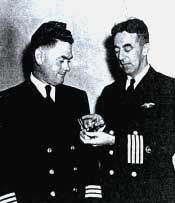 The President of the United States takes Pleasure
in Presenting the Merchant Marine Distinguished Service Medal to
The President of the United States takes Pleasure
in Presenting the Merchant Marine Distinguished Service Medal to Dale P. Baird
Second Mate on SS Admiral Halstead 02/19/42 to 02/26/42
For distinguished service in the line of duty.
For eighteen months the ship in which he was serving operated in the Southwest Pacific under especially hazardous conditions, as it was at all times in the danger zone, was unescorted, and only lightly armed. In an attack on Port Darwin, [Australia] and on the nine succeeding days, when most of the crew had left the ship, he with his Captain and four officers and men, manned the two machine guns, and so successfully defended the ship that it was the only one of twelve merchant vessels in the harbor not destroyed.
After the first attack, this small group protestingly left the ship upon orders of the military authorities, but subsequently returned, got underway, and took their ship out into the harbor each morning and returned to the dock each night to discharge cargo, so as not to endanger the dock during daylight. Because of the indomitable determination and courage of these six men, they succeeded in delivering the gasoline so vitally necessary to Army operations.
His loyalty to his ship and his devotion to duty have added another inspirational chapter to the history of the United States Merchant Marine.
For the President
Admiral Emory Scott Land
Dael Porter Baird receives medal from Captain M.E. Crossman, Superintentent of U.S. Maritime Service Officers' School. Photo: Alameda "Neptune" magazine U.S. Maritime Service Officers' School Alameda, November 30, 1944. Baird lived in Portland OR.
George E. Baker
Ordinary Seaman on SS Matt Ransom 04/11/43
For distinguished conduct under especially hazardous conditions.
While the crew was abandoning the sinking ship in which he served, following enemy torpedo attack, the falls of a lifeboat were fouled with the result that the boat filled with water and its occupants were thrown into the sea. The men immediately swam toward other lifeboats, but the Chief Engineer, who had only one arm, clung to the life net spread over the ship's side. All efforts to get him to another lifeboat failed, whereupon Baker voluntarily climbed down the net while the ship still had considerable headway--released the Chief Engineer--swam with him to a nearby lifeboat, and assisted him into the boat. In performing this gallant act he imperiled his own life, but managed to keep afloat until he was picked up a half hour later.
By risking his life in saving a disabled shipmate under especially hazardous conditions Baker upheld the finest traditions of the United States Merchant Marine.
For the President
Admiral Emory Scott Land
Baker, born in 1919, lived in Cleveland OH.
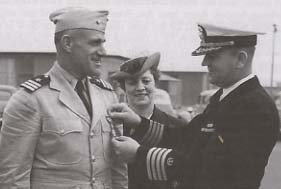 The
President of the United States takes Pleasure in Presenting the Merchant Marine
Distinguished Service Medal to
The
President of the United States takes Pleasure in Presenting the Merchant Marine
Distinguished Service Medal to
Charles Nathaniel
Bamforth
Master of SS Honolulan 07/22/42
For distinguished service in the line of duty.
His ship having been torpedoed, he calmly gave orders to abandon ship, but remained onboard with the First Mate and Radio Operator to obtain extra food and equipment for a lifeboat which was standing by close aboard. Just as this task was completed, a second torpedo struck and the ship began to settle rapidly. In company with the other two officers, he jumped over the side and swam to the nearby lifeboat. Mustering his crew on the three lifeboats and discovering that an oiler was missing, he conducted this search until the one missing man was rescued. Having received a signal from a plane that help was on its way, he kept the boats together in the vicinity for four days, and on the fifth day, with no assistance in sight, set his course for the nearest land and finally was picked up by an English steamer.
His calmness, which inspired his crew, his concern for the safety and comfort of his officers and men, his leadership in keeping the boats together were highly commendable and in keeping with the finest traditions of the United States Merchant Marine.
For the President
Admiral Emory Scott Land
Presented May 22, 1944
Photo and text from: Bamforth, Charles A. and Bamforth, Richard A. Iron Jaw: A Skipper Tells His Story, Captain Charles N. Bamforth. Pittsburgh, PA: Dorrance Publishing Co., 2002. Bamforth lived in Swampscott MA.
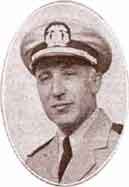 The
President of the United States takes Pleasure in Presenting the Merchant Marine
Distinguished Service Medal to
The
President of the United States takes Pleasure in Presenting the Merchant Marine
Distinguished Service Medal to Bruno Bernard
Baretich
Second Mate on SS Saint Mihiel 04/09/45
For distinguished service under unusual demands and hazards.
While in convoy, his ship, SS Saint Mihiel, with a capacity load of high octane gasoline, was struck at night by another tanker [SS Nashbulk]. She burst into flames, and the order to abandon ship was immediately given, twenty-three hands escaping and later being picked up by a destroyer escort. Still afloat, but flaming, at daybreak, it was decided to try to salvage her. Together with a repair crew from two destroyers, Baretich, the senior surviving deck officer, and fourteen volunteer crew members, reboarded the ship.
Under his leadership the fires were brought under control, engines turned over, and by utilizing the after emergency steering gear, and stationing himself in the bow -- the bridge having been completely gutted -- the Saint Mihiel was successfully brought to New York. The still smouldering fires were then extinguished, valuable cargo salvaged and the vessel repaired.
His extraordinary courage and skillful seamanship under circumstances which indicated possible annihilation will be a lasting inspiration to all seamen of the United States Merchant Marine.
For the President
Admiral Emory Scott Land
Baretich was born in Trieste, Austria in 1902, and lived in Indianapolis IN. He graduated from Fort Trumbull USMS Officer School. He was also known as Barney Burnett, band leader, musician and composer. Photo: Who's Who in the Maritime Industry. Read more about Bruno B. Baretich
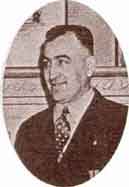 The
President of the United States takes Pleasure in Presenting the Merchant Marine
Distinguished Service Medal to
The
President of the United States takes Pleasure in Presenting the Merchant Marine
Distinguished Service Medal to Charles Birdsall
Third Steward on SS President Fillmore 12/10/42
For heroism above and beyond the call of duty.
During a fire which completely enveloped the midship section of the ship in which he was serving, and when the crackling and roaring blaze was still not under control, shouting was heard from someone trapped in a cabin. When attempts to break into this cabin from the outside failed, Birdsall volunteered to go through the port inner passageway to investigate. At risk of his own life, he dashed through flames and smoke while hoses played on him, and dragged to safety an officer of the United States Navy.
By his heroic conduct, which was absolutely without regard for the safety of his own life, he rescued a shipmate, and in so doing lived up to the highest traditions of the United States Merchant Marine.
For the President
Admiral Emory Scott Land
Birdsall's address was in Seattle WA. Photo: Who's Who in the Maritime Industry.
James Blaisdell
Master of SS Mary Kinney
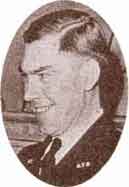 The
President of the United States takes Pleasure in Presenting the Merchant Marine
Distinguished Service Medal to
The
President of the United States takes Pleasure in Presenting the Merchant Marine
Distinguished Service Medal to Robert Ernest
Blakefield
Master of SS Taku 01/13/42
For heroism beyond the line of duty.
At midnight, fire broke out in the holds of an Army transport [USAT Clevedon] moored at a dock in an Alaskan port. In her cargo were many tons of bombs and ammunition consigned to our Aleutian forces. In spite of the most desperate efforts of her own crew the fire rapidly gained headway until the roaring flames forced most of them to abandon her. Captain Blakefield maneuvered his much smaller ship, alongside and brought all his fire fighting equipment to bear; but the fire could not be controlled, and the danger of the transport exploding at the dock momentarily increased.
Mooring lines were then cut, and the smaller ship took on the highly hazardous task of moving the transport away from the dock and beaching her at a distance down the bay. With flames from the burning ship sweeping over his own, Blakefield accomplished this task, and succeeded in getting away before the transport blew up with a force which threw fragments of her hull two or three thousand feet into the air. Had the transport remained at the dock, the explosion would have completely wrecked the dock and caused serious damage to the town.
The heroic action of Captain Blakefield and his gallant crew are in keeping with the finest traditions of the United States Merchant Marine.
For the President
Admiral Emory Scott Land
Blakefield, born in 1910, lived in Seattle WA. Photo: Who's Who in the Maritime Industry.
 Murray M.
Blum*
Murray M.
Blum*
Radio Operator on SS Leonidas S. Polk 12/03/43
For heroism beyond the line of duty.
In the middle of the night, his ship, SS Leonidas S. Polk, was steaming in blacked-out convoy through icy North Atlantic waters when it collided with another ship which sank almost immediately. Radio Operator Blum, hearing cries of a drowning survivor who was beyond the range of buoy lines, dived overside into a rough sea filled with wreckage and was last seen swimming away from his ship in search of the distressed man. That he was unsuccessful in his mission does not detract from the glory of his effort, but his heroism was further sanctified when, in his attempt to rescue the drowning man, he gave his own life. [Buried Cambridge American Cemetery Location E-0-51]
His utter disregard of the odds against his own survival was a heroic manifestation of the spirit which so inalienably characterizes the men of the United States Merchant Marine.
For the President
Admiral Emory Scott Land
Blum was born in New Haven CT in 1921
Albert M.
Boe*
Chief Engineer on USAT FS-214 04/14/44
For heroism beyond the line of duty.
In the engine room of his transport at the time of an explosion of undetermined origin, Chief Engineer Boe suffered severe burns, ultimately resulting in his death. Despite the excruciating pain he remained in the engine room, after ordering all hands "topside", personally closed all oil line check valves and cut off the generators, thereby controlling the spreading fire. If he had not stayed at his post to perform these acts, which saved the ship and the lives of his shipmates, his life could have been saved.
His extraordinary courage protecting the lives of his shipmates in the face of probable death will be an inspiration to seamen in the United States Merchant Marine everywhere.
For the President
Admiral Emory Scott Land
Boe lived in New Orleans LA
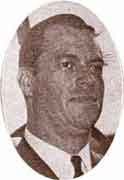 The
President of the United States takes Pleasure in Presenting the Merchant Marine
Distinguished Service Medal to
The
President of the United States takes Pleasure in Presenting the Merchant Marine
Distinguished Service Medal to Maurice Breen
Purser on SS Sahale 09/12/42 to 09/18/42
For meritorious service beyond the line of duty.
Early in the war, his ship was in a British port when ordered to join a convoy to Russia [PQ-18]. Additional guns were mounted on the ship for this highly dangerous run, and the gun commander called for volunteers from the merchant seamen to man them. Breen volunteered--received a British Merchant Navy A/A Gunnery Certificate after only two days instruction--and was put in charge of a .50 caliber machine gun mounted on the bridge. He stood regular watches at all times, and served his gun throughout a six days running battle with enemy submarines, bombing planes, and torpedo planes.
On one occasion, a low-level Heinkel bomber came in to attack a ship close on the port beam. On the alert, and before other guns could be brought to bear, he gave the plane a lead and brought his line of fire into its line of flight. The plane's starboard engine burst into flame; then exploded, and the bomber was seen to crash into the sea a few seconds later.
Although his duty did not require him to be above deck during enemy attacks, his voluntary acceptance of a dangerous assignment, and his skillful performance of a self-imposed duty, constitute qualities of service which will be an enduring inspiration to seamen of the United States Merchant Marine everywhere.
For the President
Admiral Emory Scott Land
Breen, who lived in New Orleans, LA, was 36 years old. Photo: Who's Who in the Maritime Industry.
Hugh Parks
Brown, Jr.
Third Mate on SS City of Alma 06/02/42
For heroism and unfaltering courage under hazardous conditions.
SS City of Alma, struck by a torpedo shortly before midnight, sank immediately with the loss of all but ten hands. Brown, having been thrown into the sea, swam through the thick debris and remained afloat on an improvised raft until daybreak. After locating and assisting to the raft five widely separated shipmates, some of whom were injured, a capsized lifeboat was recovered. Brown succeeded in righting the lifeboat after diving beneath it and puncturing one of its tanks with a hatchet he had salvaged. Aboard the lifeboat he gave orders to cruise the area and came upon four other crew members in the water. Brown unhesitatingly swam to and assisted each safely aboard the craft. A makeshift sail was rigged, course set, and port reached four days later.
By repeatedly risking his life in rescuing shipmates under extremely hazardous conditions, he maintained the highest standards of the United States Merchant Marine.
For the President
Admiral Emory Scott Land
Paul H. Browne
Master of SS China Arrow 02/05/42
For heroism and distinguished service under unusual hazards.
The tanker under his command, was carrying fuel to our Eastern seaboard. Without warning, two torpedoes in quick succession exploded in the main tanks. As a consequence, the cargo expansion trunks were blown through the main deck hatches and large quantities of the inflammable cargo were thrown high into the air. The oil, raining back on the ship, became ignited, and the decks were swept by flames. The enemy submarine surfaced about one-quarter of a mile away with evident intent to sink the blazing ship by shell fire. Alert to this maneuver, the Master ordered the crew to abandon ship and lay-off astern, in order to minimize loss of life.
Needless of personal risk from flame and shell fire, he and his Radio Operator remained aboard the blazing ship for nearly three-quarters of an hour rigging a jury antenna and setting up an emergency short wave transmitter to replace the standard equipment which had been wrecked by the explosions. Finally, by the exercise of considerable ingenuity, the emergency radio rig was completed and a continuous call distress signal was sent out. This message was received by shore stations, and rescue of the entire crew was effected 56 hours after the attack.
Captain Browne's personal courage, leadership and high devotion to duty constitute qualities of service which will be an enduring inspiration to seamen of the United States Merchant Marine everywhere.
For the President
Admiral Emory Scott Land
Browne lived in Nutley NJ.
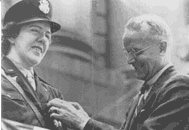 The President of the United States
takes Pleasure in Presenting the Merchant Marine Distinguished Service Medal
to
The President of the United States
takes Pleasure in Presenting the Merchant Marine Distinguished Service Medal
to
Paul Buck*
Master of SS Stephen Hopkins 09/27/42
For distinguished service in enemy action.
Two enemy surface raiders suddenly appeared out of the mist to attack the small merchantman in which he was serving as Master. Heavy guns of one raider pounded his ship, and machine gun fire from the other sprayed her decks. He skillfully maneuvered his ship so that the heavier guns could be trained on the raider, and under his supervision his ship exchanged shot for shot with the enemy until the crew of one raider was forced to abandon its sinking ship, and the other enemy ship was forced to withdraw. His calmness under fire and his fearlessness in defending his ship were an inspiration to his crew. With boilers blown up and engines damaged, masts shot away, and ablaze from stem to stern, he reluctantly gave the order to abandon ship. The only serviceable lifeboat being overcrowded, he, unselfishly and heroically, remained on the bridge and went down with his battered ship.
His determination to fight his ship and his perseverance in engaging the enemy to the utmost until his ship was rendered helpless and sinking were in keeping with the finest traditions of the United States Merchant Marine.
For the President
Admiral Emory Scott Land
Admiral E. S. Land pins the Distinguished Service Medal on 2nd Lt. Gertrude Buck, Army Nurse Corps, widow of Paul Buck.
James C. Cameron*
Jr. Third Mate on MS Brilliant 11/18/42
For especially meritorious service under unusual demands and hazards.
When his ship was torpedoed, she listed badly to starboard and began settling rapidly. "Abandon Ship" orders were given, and one boat-load of the crew had already pulled away when the ship righted herself and ceased settling. Junior Third Officer Cameron was the remaining deck officer on board at this time. He continued to supervise arrangements for abandoning ship and, with the heroic assistance of the remaining crew members, he accomplished the extinguishing of deck fires and directed the Chief Engineer to start the engines in an effort to save the ship and her valuable cargo. He then brought her through heavy weather and dangerous waters to the nearest safe port.
During the two days the ship was under way toward land, Cameron remained continuously on the bridge and on deck directing the ship's course. After a safe anchorage was reached, then, in spite of his exhausted condition, he continued necessary arrangements to make his vessel seaworthy for the voyage to the nearest repair port. His skillful handling of this extremely difficult situation, and his willing assumption of responsibility not ordinarily his, were prime factors in saving both ship and crew.
His personal courage and devotion to duty will be an enduring inspiration to seamen of the United States Merchant Marine everywhere.
For the President
Admiral Emory Scott Land
Cameron was from New York, NY
Foster DeWight
Carpenter
Chief Mate on SS Daniel Huger 05/09/43
For heroism beyond the call of duty.
His ship was subjected to a two-hour high level bombing attack by seventeen enemy planes [Bone, Algeria]. As a result of a near miss, bomb fragments pierced the hull and the cargo of high octane gasoline exploded. Despite heroic efforts to combat the flames two to three hundred feet high, the fire was soon out of control and the ship was abandoned. Upon arrival of the shore fire brigade it was decided to try to save the ship with foamite. It was necessary to have a few men return to the ship, enter the adjacent hold, and play a hose on the heated bulkhead to prevent the raging fire from spreading. Chief Officer Carpenter was one of four who volunteered to risk his life in an attempt to save part of the cargo, which was so necessary to the continuance of war operations. That the fire was eventually brought under control and most of the cargo saved, was due in no small measure to his outstanding bravery.
His willingness to risk his life to save his ship, and his heroic conduct during the fire are in keeping with the finest traditions of the sea.
For the President
Admiral Emory Scott Land
Carpenter was born in 1905 and lived in New Orleans LA.
Oscar Chappell*
Able Seaman on SS Dixie Arrow 03/26/42
For heroism beyond the line of duty.
His ship, carrying a full cargo of crude oil, was torpedoed three times within one minute. The first torpedo struck directly below the forward deckhouse, and the other two slightly abaft this point causing the ship to buckle amidship. The explosions immediately ignited the combustible cargo; all amidship and astern sections of the ship were enveloped in flames, and the fire rapidly spread over the ocean surrounding the ship. Injured by the explosions, with blood covering his head and shoulders, Chappell stuck to his post at the helm though the wheelhouse was in flames. He saw seven of his shipmates trapped on the forecastle head. Driven by the wind, the fire was sweeping toward them over the deck, and all escape was cut off by water-borne flames surrounding the bow. Fully aware of his own desperate situation, Chappell put the helm hard right and held the ship into the wind deflecting the flames upon himself, but enabling his shipmates to jump overboard clear of the blazing sea of oil. Placing his own safety beyond all consideration, his last thought and act was to assure the survival of his imperiled shipmates.
His magnificent courage and selfless disregard of his own life constitute a degree of heroism which will be an enduring inspiration to seamen of the United States Merchant Marine everywhere.
For the President
Admiral Emory Scott Land
 The President of the United
States takes Pleasure in Presenting the Merchant Marine Distinguished Service
Medal to
The President of the United
States takes Pleasure in Presenting the Merchant Marine Distinguished Service
Medal to Edwin F. Cheney,
Jr.
Able Seaman on SS John D. Gill 03/12/42
For heroism above and beyond the call of duty during enemy attack when he
released and launched a life-raft from a sinking and burning ship and maneuvered
it through a pool of burning oil to clear water by swimming under water, coming
up only to breathe. Although he had incurred severe burns about the face and
arms in this action, he then guided four of his shipmates to the raft, and
swam to and rescued two others who were injured and unable to help themselves.
His extraordinary courage and disregard of his own safety in thus rescuing
his shipmates will be an enduring inspiration to seamen of the United States
Merchant Marine everywhere.
For the President
Admiral Emory Scott Land
Photo: War at Sea, War Shipping Administration, 1946. President Franklin Delano Roosevelt pins Distinguished Service Medal on 25 year old Edwin Cheney, Jr. on Oct. 8, 1942 at the White House as Admiral Land looks on. This photo also was featured in a 1942 LIFE Magazine article. Cheney was from Yeadon, PA
Samuel L.
Cobb*
Master of SS Alcoa Guide 04/16/42
For heroism and especially meritorious service under unusual hazards.
Though mortally wounded early in the action in which his ship was sunk by enemy submarine, he first endeavored to ram the attacker, and then ran through fire to his cabin to recover the Navy Code and other highly confidential papers which he cast overside in a weighted sack. He later died in a lifeboat from wounds and burns caused by these actions.
His extraordinary courage and fidelity to trust will be an enduring inspiration to seamen of the Unites States Merchant Marine everywhere.
For the President
Admiral Emory Scott Land
Cobb, 43 years old, was from West New York, NJ
Allen G. Collins*
Third Mate on SS John Bascom 12/02/43
For distinguished service under unusual hazards and demands.
The SS John Bascom, in which Collins was serving, was moored in close proximity to an ammunition laden vessel in the harbor of Bari, Italy. An air raid of major proportions soon developed, with the result that many ships were exploding and sinking, including the ammunition vessel near the John Bascom, whose deck cargo became a raging inferno. Many casualties to personnel were caused by flying debris and strafing by enemy planes. Collins served as a member of a gun crew until seriously wounded by the explosion of a bomb.
With no thought of his own safety he managed to assist other men to the only remaining lifeboat, helped lower the boat, manned an oar for the trip to the breakwater and assisted in dragging three additional injured men from the flaming oil covered waters of the harbor. Several days later he died in a local hospital as a result of the injuries he had incurred. [Buried Sicily-Rome American Cemetery Location J-9-53]
Collins' great courage and his self-sacrificing devotion to the task of aiding imperiled shipmates were in keeping with the highest traditions of the United States Merchant Marine.
For the President
Admiral Emory Scott Land
Robert A.
Constantine
Third Mate on SS John Swett 02/23/45
For heroism beyond the line of duty.
While his ship, SS John Swett, was anchored in Mindoro, Philippine Islands, Constantine debarked with other shipmates to an Army amphibious truck for passage to the mainland. En route, this craft was temporarily lying alongside another Liberty ship, in light condition, which, without warning started her engines ahead and forced the Army boat toward her exposed propeller. In the ensuing chaos twenty-two men jumped over the side, some of whom succeeded in climbing up ropes which had been hanging from the Liberty's deck.
Constantine remained aboard the small boat with three others and received a painful leg injury when she collided with the Liberty ship which continued under way. He then observed a survivor who appeared unconscious, floating in the wake of the Liberty's propeller, and immediately swam to him. Just as he was assisting him aboard the craft it lost buoyancy and sank. He continued to swim to the aid of several shipmates in the rough sea who were without life preservers, lashed one non-swimmer to a floating water can, then gathered floor boards of the sunken boat and distributed them among those in a weakened condition. When finally rescued by Army and Navy craft, Constantine grasped a line thrown from one of the pitching boats and saved two men by allowing them to climb aboard on his shoulders and head. By this time he was so exhausted that he was hauled on board the rescue boat with great difficulty.
His indomitable courage and utter disregard of personal safety in immediately going to the aid of shipmates in peril will be a lasting inspiration to all seamen, and were in keeping with the highest traditions of the United States Merchant Marine.
For the President
Admiral Emory Scott Land
Constantine, born in 1911, was from Brooklyn NY. He attended Fort Trumbull Officer School.
 The
President of the United States takes Pleasure in Presenting the Merchant Marine
Distinguished Service Medal to
The
President of the United States takes Pleasure in Presenting the Merchant Marine
Distinguished Service Medal to Cleon A. Craig
Second Engineer on SS John Adams 05/05/42
For heroism beyond the line of duty.
His ship was torpedoed at night. The torpedo struck directly beneath quarters in which three messmen were sleeping, and the concussion blew the door to their room shut with sufficient force to break the lock. At the same time cargo of aviation gasoline exploded and the entire after deck was ablaze. The liquid fire ran through the alleyway; through the ports, and into the room in which the men were imprisoned. On orders to abandon ship, Craig was hurrying to his boat station when he heard the cries of the trapped men. Running below, he secured an axe from a bulkhead, broke open the door, and released the men from the burning room. Then, with flames roaring around them, he guided and helped the severely burned men up on deck and into a lifeboat.
His high courage and complete disregard of his own safety in thus saving the lives of three of his shipmates will be an enduring inspiration to seamen of the United States Merchant Marine everywhere.
For the President
Admiral Emory Scott Land
Craig lived in Three Rivers MI. Photo: Who's Who in the Maritime Industry.
Alvin R. Crawford*
Able Seaman on SS Marcus Daly 12/05/44
For heroism beyond the call of duty.
During the initial invasion of the Philippine Islands at Tacloban, Leyte, the SS Marcus Daly, in which Crawford was serving, carried troops and vital war material and, with two other vessels, afforded the principal defenses of the port for several days. During six days and nights of incessant fighting, while troops were being disembarked and her cargo safely discharged, the vessel was at times the only fire power defending the vital Leyte docks. Crawford volunteered and served as a member of the forward gun crew which distinguished itself during countless attacks by repulsing the enemy and bringing down many planes. Two months later, on a subsequent arrival in the Philippines, this same vessel was again attacked by enemy bombers. Again Crawford served as a volunteer member of the gun crew during the engagement in which his ship shot down several Japanese aircraft. One of these bombers, after being hit, crashed and exploded under the forward gun platform, where Crawford was serving, killing him instantly.
His indomitable courage and unselfish service beyond the call of duty were in keeping with the highest traditions of the United States Merchant Marine.
For the President
Admiral Emory Scott Land
Thomas Crawford*
Able Seaman on SS Maiden Creek I 12/31/42
For heroism above and beyond the line of duty.
In the course of the voyage, the ship in which he served had already run into heavy weather and had suffered considerable damage. Before temporary repairs could be made by her crew, she encountered a second storm, of greater intensity. Huge seas were shipped again and again, and the bitter cold caused severe icing which put the ship down by the head. The constant pounding of the seas breached the forepeak and No. 1 hold which began to fill. The ship endeavored to come about and run before the wind and sea, but this maneuver was unsuccessful and it soon became apparent that she would founder in a very short time. Orders were given to abandon ship. The storms had badly damaged all lifeboats, except two, and the crew entered these and were lowered away. Crawford and another able seaman volunteered to lower the boats, though neither were assigned to this station. Both of these men had the opportunity to leave the ship, but chose to remain behind with the full knowledge that their rescue would be impossible, and that they could not hope to survive in the raging seas. Both men went down with their ship.
Able Seaman Crawford's self-sacrificing courage and disregard of his safety for that of his shipmates was in keeping with the highest tradition of the United States Merchant Marine.
For the President
Admiral Emory Scott Land
Crawford was from Chicago, IL.
George S.
Cronk
Second Engineer on SS Stephen Hopkins 09/27/42
For meritorious service under unusual hazards.
Two enemy surface raiders attacked the merchantman upon which he was serving. Heavy guns of one raider pounded his ship, and machine gun fire from the other sprayed her decks at close quarters. Answering shot for shot, the gallant merchantman succeeded in sinking one of the raiders before she finally went under carrying many of her fighting crew with her. Engineer Cronk, sole surviving officer of the stricken ship, took command of the only lifeboat which could be launched. In heavy rain squalls and seas running high, he succeeded in rescuing six survivors who had jumped from the sinking ship.
Then, with nineteen aboard, including four badly wounded, and with no navigational instruments other than the boat compass, a westward course was set to fetch the nearest land 2,200 miles away. The small boat beat her way westward for thirty-one days. Many times heavy weather was encountered, forcing the survivors to put out a sea anchor and heave-to because of high seas. In spite of all efforts in their behalf, three of the wounded died and there were times when delirium threatened, but Cronk's firm leadership overcame all emergencies until a safe landing was made.
His courage and practical leadership, so largely contributory to the ultimate rescue of his shipmates, are in keeping with the highest traditions of the United States Merchant Marine.
For the President
Admiral Emory Scott Land
Photo: San Francisco Call Bulletin, July 7, 1943.
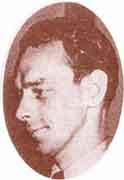 The
President of the United States takes Pleasure in Presenting the Merchant Marine
Distinguished Service Medal to
The
President of the United States takes Pleasure in Presenting the Merchant Marine
Distinguished Service Medal to Allan Bell
Currie
Third Mate on SS Admiral Halstead 02/19/42 to 02/26/42
For distinguished service in the line of duty.
For eighteen months the ship in which he was serving operated in the Southwest Pacific under especially hazardous conditions, as it was at all times in the danger zone, was unescorted, and only lightly armed. In an attack on Port Darwin, [Australia] and on the nine succeeding days, when most of the crew had left the ship, he with his Captain and four officers and men, manned the two machine guns, and so successfully defended the ship that it was the only one of twelve merchant vessels in the harbor not destroyed. After the first attack, this small group protestingly left the ship upon orders of the military authorities, but subsequently returned, got underway, and took their ship out into the harbor each morning and returned to the dock each night to discharge cargo, so as not to endanger the dock during daylight. Because of the indomitable determination and courage of these six men, they succeeded in delivering the gasoline so vitally necessary to Army operations.
His loyalty to his ship and his devotion to duty have added another inspirational chapter to the history of the United States Merchant Marine.
For the President
Admiral Emory Scott Land
Currie lived in San Franciso CA. Photo: Who's Who in the Maritime Industry.
Carl Peter
Richard Dahlstrom
Master of SS Lyman Abbott 12/02/43
For heroism in the line of duty.
In a port only a few miles behind the actual battlefront, SS Lyman Abbott was discharging explosive war cargo, when the entire harbor area was hit by a devastating air attack. The force of the explosion of a nearby ship nearly capsized the Lyman Abbott, and a hail of wreckage damaged her lifeboats, tore great holes in her deck, and started fires. Though fire hose lay uselessly severed, and fire extinguishers had been blasted to the deck where they spent their charges, Captain Dahlstrom rallied his men to beat and stamp out the flames until another ship, torn from her moorings and ablaze from stem to stern, bore down upon the Lyman Abbott and forced her crew to abandon ship.
By this time the harbor waters were ablaze with burning oil, but he landed his men through the flames in boats so damaged they were only kept from sinking by the buoyancy of their air tanks. But the Lyman Abbott cargo was vitally needed in support of the invasion and she had to be moved from the burning harbor before she exploded. Volunteers from her crew, under the personal leadership of Captain Dahlstrom, all in some degree wounded or burned, immediately responded--took the crippled and still burning ship out of port--and later returned her to discharge her critical combat material.
Captain Dahlstrom's courageous leadership, in keeping with the finest traditions of the United States Merchant Marine, was the inspiration for a valorous crew which would not yield to defeat.
For the President
Admiral Emory Scott Land
Dahlstrom lived in Forest Hills NY. He was born in Fliseryd, Sweden in 1899.
Charles M.
Dake, Jr.
Boatswain on SS Scottsburg/SS George Davis 06/14/42 and 02/09/43
For heroism beyond the line of duty.
When the SS Scottsburg was torpedoed and sunk within a few minutes, Ordinary Seaman Dake, single-handedly launched No. 3 lifeboat, took command and picked up twelve shipmates. Rescued shortly thereafter by another ship in the same convoy, their rescue ship was in turn torpedoed one hour later [SS Kahuku]. As this second vessel went down, Dake, being unable to launch a damaged lifeboat dived into the sea, swam alongside a shipmate, who was an inexpert swimmer, and encouraged him until both safely reached a raft. On a subsequent voyage while serving as boatswain on the SS George Davis, his vessel collided in convoy with another ship which sank shortly thereafter. Dake, seeing one of the gun crew from the sunken vessel struggling in the heavy sea, unhesitatingly went down the side on a cargo net and rescued him. Later he saw another drowning seaman, too weak to catch a life line, and again went over the side and succeeded in getting him on to a lowered raft and then safely aboard the ship.
His extraordinary courage and expert seamanship in the face of danger saved many lives and was in keeping with the highest traditions of the United States Merchant Marine.
For the President
Admiral Emory Scott Land
Dake lived in Overland Park KS.
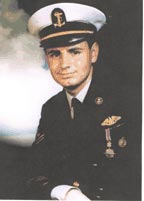 The President of the United
States takes Pleasure in Presenting the Merchant Marine Distinguished Service
Medal to
The President of the United
States takes Pleasure in Presenting the Merchant Marine Distinguished Service
Medal to Francis A.
Dales
Deck Cadet-Midshipman on SS Santa Elisa 08/11 to 08/15/42
For heroism above and beyond the call of duty.
His ship was a freighter carrying drums of high-octane gasoline, one of two American ships, in a small British convoy to Malta. Orders were to "get through at all costs". Heavily escorted, the convoy moved into the Mediterranean, and before noon of that day the enemy's attack began. From then on the entire convoy was under constant attack from Axis planes and submarines. Assigned the command of an anti-aircraft gun mounted on the bridge, Dales contributed to the successful defense of his ship for three days.
At 4:00 A.M. on the morning of the fourth day, torpedo boats succeeded in breaking through and two attacked from opposite sides. Sneaking in close under cover of the darkness one opened point-blank fire on Dales's position with four .50 caliber machine guns, sweeping the bridge and killing three of his gun crew in the first bursts. The other sent its deadly torpedo into the opposite side of the freighter. Neither the heavy fire from the first torpedo boat nor the torpedo from the second drove Dales and his crew from their gun. With only flashes to fire at in the darkness, he found the target and the first boat burst into flames and sank. But the torpedo launched by the other had done its deadly work. The high-test gasoline cargo ignited and the American ship was engulfed in flames. Reluctantly orders were given to abandon her.
Two hours later, the survivors were picked up by a British destroyer, which then proceeded to take in tow a tanker [SS Ohio] that had been bombed and could not maneuver. After five hours constant dive-bombing, the tanker was hit again--her crew abandoned her--and the destroyer was forced to cut her loose. But the cargo she carried was most important to the defense of Malta, and it had to get through. The rescue destroyer and another destroyer steamed in-- lashed themselves on either side of the stricken tanker--and dragged her along in a determined attempt to get her to port.
Dales and four others volunteered to go aboard the tanker and man her guns in order to bring more fire power to their defense. The shackled ships, inching along and making a perfect target, were assailed by concentrated enemy airpower. All that day wave after wave of German and Italian bombers dived at them and were beaten off by a heavy barrage. Bombs straddled them, scoring near misses, but no direct hits were made until noon the next day, when the tanker finally received a bomb down her stack which blew out the bottom of her engine room. Though she continued to settle until her decks were awash, they fought her through until dusk that day brought them under the protection of the hard fighting air force out of Malta.
The magnificent courage of this young cadet constitutes a degree of heroism which will be an enduring inspiration to seamen of the United States Merchant Marine everywhere.
For the President
Admiral Emory Scott Land
Dales, 20
years old, was from Augusta, GA. [Photo courtesy Francis Dales]
Polaris Magazine, July 1943, article about Dales
William Dalton
Chief Engineer on MS Bidwell 04/06/42
For heroism and meritorious service beyond the line of duty.
When a torpedo struck the tanker in which he served, the explosion blew through the after deck. Cargo oil was ignited, enveloping that part of the ship in flames. Deck steam lines were ruptured, and the steering gear jammed in hard left position, causing the ship to circle at full speed. In this apparently hopeless situation most of the crew abandoned ship forward and others were preparing to launch a boat from the after deck. Dalton first shut off the steam from the broken lines. This enabled him to see the efforts of the remaining crew on the after deck. He ran aft through the fire and directed them to stand by the ship. With their aid, he stopped the engines and brought the fire under control. The emergency steering gear was then connected; the crew who had abandoned ship were picked up; and the ship successfully made port.
His high courage and complete disregard of his own safety, so largely contributory to the salvage of his ship and the safety of her crew, are in keeping with the highest traditions of the United States Merchant Marine.
For the President
Admiral Emory Scott Land
Dalton lived in Yeadon PA.
Gus W. Darnell
Master of SS Cardonia 03/07/42
For distinguished service in enemy action.
Attacked by an enemy submarine, he so skillfully maneuvered his ship as to cause two torpedoes to miss. As his ship was unarmed, he attempted to run from the submarine which was also attacking by gun fire at close range. For over an hour he strove to out-distance the foe. Only when enemy shells had started two serious fires, wrecked the superstructure, demolished all but one of the lifeboats, and so disabled the steering gear that the ship was out of control, did he reluctantly give orders to abandon ship.
The only usable lifeboat had been punctured by shell fragments, and while engaged in lowering away, a shell hit the fuel tank and showered the crew with burning oil, yet he so expertly supervised this operation that all but one of his crew got safely away with twenty-two men crowded into the boat and the remainder distributed on three life rafts. Making temporary repairs to the overcrowded lifeboat, he set sail for the nearest land, thirty miles away, disembarked most of the men, and endeavored to set out again into a heavy sea for the men left on the life rafts. Only when assured that these men had been rescued by a naval vessel, did he cease his determined efforts to go to their assistance.
His expert ship handling, his courageous leadership, and his fine concern for the safety of his crew were in keeping with the highest traditions of the United States Merchant Marine.
For the President
Admiral Emory Scott Land
Darnell, 43 years old, was from Houston, TX
Davis, Elsworth
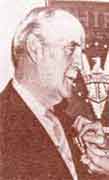 The
President of the United States takes Pleasure in Presenting the Merchant Marine
Distinguished Service Medal to
The
President of the United States takes Pleasure in Presenting the Merchant Marine
Distinguished Service Medal to
John M. Dodge
Master of SS Malay 01/19/42
For meritorious service in the line of duty.
In the early morning hours, his ship was attacked by shell fire doing heavy damage to the bridge and port quarter. The wheel was ordered hard right at the first shot and the ship maneuvered inshore in an effort to elude the submarine. Two hours later a torpedo hit amidship. As a result of this explosion, a tremendous hole was torn in the starboard side; another burst through the deck; the telemotor steering gear was put out of commission; and she took a heavy list to starboard A quick inspection of the damage indicated that the ship might be capable of proceeding under her own power, and the Master determined to bring her into the nearest port. The hand steering gear was put into commission, and emergency repairs were made to broken steam lines and control gear in the engine room. Then, while under way, the equalizing valves were opened to put her on an even keel and the ship was brought safely into an American port.
His courage, leadership, and exemplary seamanship, so largely contributory to the salvage of his ship, are in keeping with the highest traditions of the United States Merchant Marine.
For the President
Admiral Emory Scott Land
Dodge lived in Baltimore MD. Photo: Who's Who in the Maritime Industry.
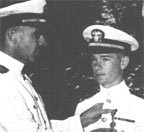 The
President of the United States takes Pleasure in Presenting the Merchant Marine
Distinguished Service Medal to
The
President of the United States takes Pleasure in Presenting the Merchant Marine
Distinguished Service Medal to Elmer C. Donnelly
Deck Cadet-Midshipman on SS Daniel Huger 05/09/43
For heroism beyond the call of duty.
His ship was subjected to a two-hour high level bombing attack by seventeen enemy planes [Bone, Algeria]. As a result of a near miss, bomb fragments pierced the hull and the cargo of high octane gasoline exploded. Despite heroic efforts to combat the flames two to three hundred feet high, the fire was soon out of control and the ship was abandoned. Upon arrival of the shore fire brigade it was decided to try to save the ship with foamite.
It was necessary to have a few men return to the ship, enter the adjacent hold, and play a hose on the heated bulkhead to prevent the raging fire from spreading. Cadet-Midshipman Donnelly was one of five who volunteered to risk his life in an attempt to save part of the cargo, which was so necessary to the continuance of war operations. That the fire was eventually brought under control and most of the cargo saved, was due in no small measure to his outstanding bravery.
His willingness to risk his life to save his ship, and his heroic conduct during the fire are in keeping with the finest traditions of the sea.
For the President
Admiral Emory Scott Land
Donnelly, 18, lived in North Weymouth MA. Photo: We'll Deliver: Early History of the United States Merchant Marine Academy, 1938-1956.
Walter S. Downs
The President of the United States takes Pleasure in Presenting the Merchant Marine Distinguished Service Medal to
Arthur J.
Drechsler
Jr. Third Engineer on SS Richard Hovey 03/29/44
For distinguished service beyond the line of duty.
Adrift in a damaged lifeboat under the scorching sun of the Arabian Sea, thirty-nine men faced death as a result of thirst. Their ship, SS Richard Hovey, had been torpedoed by an enemy submarine which had viciously strafed the lifeboat with machine-gun fire wounding some of the survivors and puncturing all but one of the fresh water tanks. With no other tools than an axe, pliers, a screwdriver and a steel punch, Drechsler, utilizing metal brackets from a foot rest, two empty metal food containers, the metal cone from a storm oil bag, and the rubber hose from a lifeboat pump, improvised an ingenious still which produced a ration of eleven ounces of potable water per man throughout the sixteen days before rescue.
His resourcefulness and ingenuity which contributed so largely to the chances of survival for his shipmates will be an inspiration to men of the United States Merchant Marine everywhere.
For the President
Admiral Emory Scott Land
Drechsler lived in Whitestone NY.
The President of the United States takes Pleasure in Presenting the Merchant Marine Distinguished Service Medal to
Ragnar Frederick
Eklund
Master of SS Exmoor 04/06/42
For especially meritorious service under unusual demands and hazards. His was the only American ship in a convoy of seven, all of which wore sunk in the Bay of Bengal by heavy shell fire from three enemy cruisers. The first salvo threw him from the bridge into the ship's office, breaking one or two of his ribs and injuring his left ankle. He returned to the bridge and ordered the bridge watch below to the lifeboats and remained alone on the bridge at the helm of his sinking ship, directing the lowering of the boats. He did not leave the bridge until the forward deck was completely under water.
Although the loss of life from the other ships was high, Captain Eklund managed to land his entire crew safely on the Indian Coast with the survivors of the other ships. There the injured were treated, and the entire company set out on foot through twelve miles of dense jungle to the nearest river village. From this point, the survivors were taken in buses to Cattuck, 50 miles from the coast, and thence returned to Calcutta.
His extraordinary achievement and leadership will be an enduring inspiration to seamen of the United States Merchant Marine everywhere.
For the President
Admiral Emory Scott Land
Eklund was from Sunnyside, NY
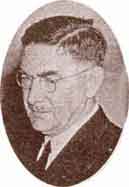 The
President of the United States takes Pleasure in Presenting the Merchant Marine
Distinguished Service Medal to
The
President of the United States takes Pleasure in Presenting the Merchant Marine
Distinguished Service Medal to
John E. Ellison
Master of SS Domino 06/02/42
For distinguished service in the line of duty.
In the early morning hours, an alert watch observed a surfaced submarine approaching from astern at high speed. General alarm was sounded, and Captain Ellison instantly ordered full right rudder so that the stern gun could be quickly brought to bear. The submarine apparently did not sight the blackened-out ship until it was about four hundred feet nearly abeam, and in no position to fire a torpedo. Upon sighting the swinging ship, the submarine opened fire with its machine guns. Almost simultaneously, the ship swung her heavy stern gun into position. Three shots were fired--the second registered a direct hit on the conning tower--and the submarine crash-dived. Fearing a second attack, Captain Ellison cleverly maneuvered his ship in a circle of zig-zags for three hours, and later safely brought her into a nearby port. It was not until a closely following ship reported light oil patches in the same locality, that it was known that the submarine was probably sunk. [The sub was not sunk.]
His determination to fight his ship, and his expert maneuvering contributed largely to saving the ship, her cargo, and her crew.
For the President
Admiral Emory Scott Land
Ellison, born in Norway in 1895, and lived in Upper Darby PA. Photo: Who's Who in the Maritime Industry.
Even Evenson
Master of SS Benjamin Contee 08/16/43
For distinguished service in the line of duty.
His ship, the SS Benjamin Contee, was carrying 1,800 prisoners of war when she was struck at night by an aerial torpedo from an enemy dive bomber which glided in with stilled engines. The torpedo struck the forward holds in which 900 prisoners were confined, blew off the hatches, and killed and injured more than three hundred. The ship immediately began settling by the head as the sea rushed in the gaping hole forward, and the surviving prisoners swarmed out of the holds over the forward decks in panic, throwing liferafts overside and releasing the lifeboats from their davits.
Exercising forceful command, Captain Evensen herded the panic-stricken prisoners from the forward to the after decks. Then, releasing the remaining 900 prisoners from the after holds, he flooded those holds to bring his ship on an even keel. Supported by the fine discipline of a loyal crew, he was able to bring his ship into a safe port and to deliver the surviving prisoners into proper military hands.
Captain Evensen's complete mastery of a critical situation prevented a tragedy of huge human and material proportions. His courage, seamanship, and disciplinary control in a time of grave danger were in keeping with the finest traditions of the United States Merchant Marine.
For the President
Admiral Emory Scott Land
Evensen was born in Norway in 1885. He lived in New Orleans, LA.
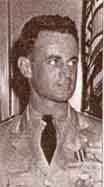 The
President of the United States takes Pleasure in Presenting the Merchant Marine
Distinguished Service Medal to
The
President of the United States takes Pleasure in Presenting the Merchant Marine
Distinguished Service Medal to Edward Michael
Fetherston
Third Mate on SS Heffron 07/05/42
For heroism beyond the line of duty.
The ship in which he served was without defense armament, except for two .30 caliber machine guns mounted without protective shielding on the bridge [PQ-16]. During six days of continuous attack Fetherston manned one of these guns and aided in successfully standing-off numerous dive-bombing attacks. On one occasion, while picking up survivors from another ship, two enemy bombers attacked within a hundred feet of his ship. Fetherston's position was heavily sprayed with machine gun bullets from the attacking planes, but he continued to pour bullets into the nose of the nearest dive-bomber causing it to lift from its dive and over-shoot with a string of four bombs. Homeward bound his ship again encountered enemy action and was mined and sunk [QP-13]. On this occasion, Fetherston, with complete disregard for his own safety, exhibited exceptional courage and skill in moving injured men into the lifeboats and personally rescued an injured and helpless fireman whose life would have been lost without his aid.
His admirable courage and devotion to duty will be an enduring inspiration to seamen of the United States Merchant Marine everywhere.
For the President
Admiral Emory Scott Land
Fetherston, 27 years old, was from Norfolk, VA. Photo: Who's Who in the Maritime Industry.
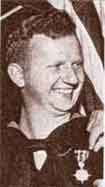 The
President of the United States takes Pleasure in Presenting the Merchant Marine
Distinguished Service Medal to
The
President of the United States takes Pleasure in Presenting the Merchant Marine
Distinguished Service Medal to Louis George
Finch
Able Seaman on SS Emidio 12/20/41
For heroism above and beyond the call of duty.
While his ship was under heavy shrapnel shell fire, he volunteered to go aloft with the First Mate and assisted him in rigging an emergency antenna. In the ensuing action the ship was sunk and most of the life boats damaged by shell fire and a torpedo hit. Finch was among the last to abandon ship with the wounded in a small and overloaded work boat which was in danger of swamping in rough seas. He voluntarily went over the side in order to lighten the boat load, and held onto the gunwales until picked up by another life boat about one and one-half hours later.
His extraordinary courage and disregard of his own safety will be an enduring inspiration to seamen of the United States Merchant Marine everywhere.
For the President
Admiral Emory Scott Land
Finch, 23 years old, was from Lowell, MA. Photo: Who's Who in the Maritime Industry.
Samuel C.
Frey
Master of USAT David W. Branch 11/24/43
For distinguished service beyond the line of duty.
While in Alaskan waters, his ship, USAT David W. Branch, intercepted an S.O.S. from a grounded vessel [SS John P. Gaines]. With full speed in the perilous sea which prevailed, he arrived at the given position and observed the stranded ship immersed to her main deck with eighteen hands still aboard. Ordering a motor lifeboat launched, the "Branch" provided a lee through skillful maneuvering in the dangerous shoal waters. After the stricken crew was rescued the motor failed. Seeing their precarious situation, with heavy seas shipping broadside over the boat, and the crew unable to control the manned oars, he ordered the shooting of two lines, the second of which was secured, thus enabling the craft to come alongside and effect the safe transfer of these seamen to his ship with only a few minor injuries.
His expert seamanship and utter disregard for personal safety in going to the aid of distressed seamen were in keeping with the highest standards of the United States Merchant Marine.
For the President
Admiral Emory Scott Land
Frey lived in Edmonds WA. He was born on Vancouver Island, Canada in 1909.
August Friberg
Chief Engineer on SS China Arrow 02/05/42
For especially meritorious
service under unusual hazards.
The ship on which he was serving suffered a torpedo hit exploding in the oil
tanks and setting them and the 'tween decks on fire. He worked his way aft
along the outside of the ship's rail through intense heat, smoke and oil covered
decks to the main smothering line, and turned the steam on the cargo tanks
and 'tween decks. His action resulted in checking the fires sufficiently to
save the lives of crew members which, without doubt, would otherwise have
been lost.
His extraordinary courage and disregard of his own safety will be an enduring inspiration to seamen of the United States Merchant Marine everywhere.
For the President
Admiral Emory Scott Land
August Friberg, 63 years old, was from Beaumont TX.
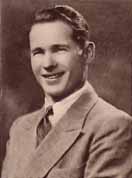 The
President of the United States takes Pleasure in Presenting the Merchant Marine
Distinguished Service Medal to
The
President of the United States takes Pleasure in Presenting the Merchant Marine
Distinguished Service Medal to Hawkins Fudske*
Chief Mate on SS Esso Bolivar (Panama flag) 03/07/42
For heroism above and beyond the call of duty.
Finding himself as First Mate, in command when the Master of the ship was killed while the vessel was under heavy shell and torpedo fire from an enemy submarine, he took charge of the only remaining lifeboat. As the boat was being lowered shells continued to burst on the side of the ship overhead. A large shell fragment badly mangled one of his arms, but he nevertheless urged his men to keep lowering, and himself actually helped in this operation despite the severity of his wounds. As the boat reached the water, he was struck again in another burst of shell fire and this time mortally wounded. Realizing, in his dying condition, that the safety of the men depended on getting their boat away from the side of the ship, his last words were: "Never mind me, fellows. Try and get the boat away".
His extraordinary courage and disregard of personal danger in the protection of the lives of his shipmates will be an enduring inspiration to seamen of the United States Merchant Marine everywhere.
For the President
Admiral Emory Scott Land
Hawkins
Fudske was from Brooklyn, NY. Photo: Yearbook of the Esso Fleet 1943. Marine
Department, Standard Oil Co. (N.J.)
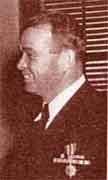 The
President of the United States takes Pleasure in Presenting the Merchant Marine
Distinguished Service Medal to
The
President of the United States takes Pleasure in Presenting the Merchant Marine
Distinguished Service Medal to James M. Fuertado
Chief Mate on SS City Of Alma 06/02/42
For heroism and unfaltering courage under hazardous conditions.
Struck by a torpedo at night, SS City Of Alma, in which Fuertado was serving, sank immediately with the loss of many lives. He was carried down with the ship but finally struggled free of the suction and reached the surface. Swimming through the wreckage, he assisted several other shipmates, one with a broken arm, to an improvised raft. Finding a half wrecked punt in the vicinity, he maneuvered it, with the assistance of another man, to an overturned lifeboat, some two miles distant. Several men were clinging to the lifeboat and with the assistance of Fuertado and his companion they were finally able to right the boat, bail her out and rig her sail. As a result of this difficult operation it was possible to cruise through the floating wreckage and rescue all the remaining men, eventually landing them safely in port [San Juan, Puerto Rico].
His exceptional courage, skillful seamanship and utter disregard of personal safety are in keeping with the highest traditions of the United States Merchant Marine.
For the President
Admiral Emory Scott Land
Fuertado, born in 1890 on Grand Cayman, BWI, lived in Oklawaha FL. Photo: Who's Who in the Maritime Industry.
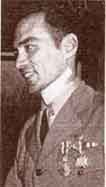 The
President of the United States takes Pleasure in Presenting the Merchant Marine
Distinguished Service Medal to
The
President of the United States takes Pleasure in Presenting the Merchant Marine
Distinguished Service Medal to Alberto Galza
Boatswain on SS Delisle 05/04/42 and 10/19/43
For heroism beyond the line of duty.
When the SS Delisle was torpedoed in the spring of 1942, the Third Mate, who had previously lost a leg, was again seriously injured while standing bridge watch. Galza was at the wheel at the time, and, though severely cut about the head and shoulders by the wreckage of the wheel house, he carried the helpless Third Mate from the bridge over decks listing forty-five degrees, and lowered him to the comparative safety of a lifeboat.
The SS Delisle survived this torpedoing, but on a later voyage, in the fall of 1943, she was again torpedoed while rescuing survivors of another torpedoed ship. The Master of the ship, another one-legged veteran of the sea, was blown from the bridge to the fore deck and lay seriously injured and hopelessly pinned down by a cargo boom which had fallen on his artificial leg. Galza, on this occasion, was aft assisting in the rescue, but immediately ran forward when told of his Captain's plight. Finding that he was not able to move the heavy boom, Galza cut the Captain free from the pinioned leg, carried him to the side, and lowered him to a waiting raft but a few minutes before the ship sank.
His heroic actions on these two occasions, in keeping with the finest traditions of the United States Merchant Marine, were instrumental in saving the life of one of his officers, and undoubtedly the sole means of saving the life of another.
For the President
Admiral Emory Scott Land
Galza, born in the Philippines, lived in Baltimore MD. Photo: Who's Who in the Maritime Industry. WSA Press Release
Andrew W.
Gavin
Master of SS Alcoa Pioneer 11/18/44
For distinguished
service in the line of duty.
During the Philippine invasion, his ship, SS Alcoa Pioneer, was anchored in
San Pedro Bay, and was subjected to unrelenting enemy air attacks. In spite
of courageous and skillful use of the ship's battery an enemy suicide plane
penetrated the barrage and crashed on the bridge deck killing and wounding
numerous members of the Armed Guard and the Merchant Crew. Captain Gavin was
knocked unconscious and suffered a broken rib and other painful injuries.
Upon regaining his senses, he immediately directed the manning of fire-fighting
equipment and succeeded in extinguishing the menacing flames before they could
reach the three forward holds which contained gasoline cargo.
Merchant seamen quickly took the places of dead and wounded gunners and kept up continuous defense of the ship. After first aid had been administered to stricken shipmates, Captain Gavin supervised emergency repairs of difficult character and large magnitude with the result that the Alcoa Pioneer returned to the United States under her own power for complete overhaul.
Captain Gavin's courage and utter disregard of personal safety were mainly responsible for saving his ship and vital cargo, as well as many lives and were in keeping with the highest traditions of the United States Merchant Marine.
For the President
Admiral Emory Scott Land
Gavin lived in New York City, NY
Edward D.
Geddes
Master of SS Heffron 07/05/42
For distinguished service in the line of duty.
His ship, SS Heffron, was in an early Russia bound convoy [PQ-16] which, for six days and nights, was subjected to continuous submarine and air attacks. Hemmed in by ice packs the convoy was forced to run the gauntlet under the severest weather conditions. The ship was without defense armament except for two .30 caliber machine guns. Enemy planes often came within 100 feet of the ship but were fought off by the fine direction of the light armament. Thrice he out-maneuvered aerial torpedoes and once evaded a torpedo fired by a submarine. In face of all the enemy could do in the air, on the surface, and under the sea, his expert seamanship and the magnificent discipline of his crew brought the ship to her destination.
Captain Geddes' personal courage and fine leadership were in keeping with the finest traditions of the United States Merchant Marine.
For the President
Admiral Emory Scott Land
Geddes lived in Tacoma WA.
Lawrence H.
Gianella*
Radio Operator on SS Prusa 12/19/41
For heroism beyond the line of duty.
The ship in which he served was in mid-Pacific when struck by an enemy torpedo. The explosion blew through the after decks; the engines and dynamos were completely wrecked; and it was immediately apparent that the ship would remain afloat only a few minutes. Orders were given to prepare to abandon ship, and instructions sent to the Radio Operator to send an S.O.S. The officer who delivered the message found Gianella already engaged in rigging an emergency set. Lifeboats were lowered away, and the Master then sent orders to Gianella to abandon ship. But the Radio Operator had not been able to get his message through. Realizing that upon him rested all hope for the rescue of his shipmates, the pull of duty and tradition was too strong to overcome. Gianella refused to leave his post and chose to face certain death in his stark devotion to duty.
His self-sacrificing courage and fidelity to trust are in keeping with the finest traditions of the United States Merchant Marine.
For the President
Admiral Emory Scott Land
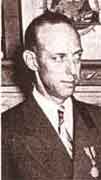 The
President of the United States takes Pleasure in Presenting the Merchant Marine
Distinguished Service Medal to
The
President of the United States takes Pleasure in Presenting the Merchant Marine
Distinguished Service Medal to John R. Haffard
Able Seaman on SS Admiral Halstead 02/19/42 to 02/26/42
For distinguished service in the line of duty.
For eighteen months the ship in which he was serving operated in the Southwest Pacific under especially hazardous conditions, as it was at all times in the danger zone, was unescorted, and only lightly armed. In an attack on Port Darwin, [Australia] and on the nine succeeding days, when most of the crew had left the ship, he with his Captain and four officers and men, manned the two machine guns, and so successfully defended the ship that it was the only one of twelve merchant vessels in the harbor not destroyed.
After the first attack, this small group protestingly left the ship upon orders of the military authorities, but subsequently returned, got underway, and took their ship out into the harbor each morning and returned to the dock each night to discharge cargo, so as not to endanger the dock during daylight. Because of the indomitable determination and courage of these six men, they succeeded in delivering the gasoline so vitally necessary to Army operations.
His loyalty to his ship and his devotion to duty have added another inspirational chapter to the history of the United States Merchant Marine.
For the President
Admiral Emory Scott Land
Haffard, born in 1904, served in the U.S. Navy from 1920 to 1940. He lived in Seattle WA. Photo: Who's Who in the Maritime Industry.
James F. Harrell*
Master of SS Gulfstate 11/07/42 and 04/03/43
For distinguished service in the line of duty.
Proceeding in convoy through an area of enemy submarine activity, he sighted, at a great distance, two drifting lifeboats heavily loaded with survivors apparently too exhausted to signal. Though fully aware of the danger to his own ship, he obtained permission from the Commodore to leave the protection of the convoy and succeeded in taking aboard 106 survivors of a torpedoed Dutch ship [MS Zaandam] in a rescue operation which required three hours to effect.
On a subsequent voyage, his ship, carrying 78,000 barrels of crude oil, was hit by two torpedoes. Fire immediately enveloped the entire after part of the ship trapping all but the Master and eleven of his crew. Captain Harrell directed the launching of the one remaining life raft, ordered the men with him over the side, and, though he might have safely abandoned ship with honor, chose to give his life in a heroic attempt to rescue the trapped men.
His selfless devotion and his courageous adherence to the code of the sea was in keeping with the finest traditions of the United States Merchant Marine.
For the President
Admiral Emory Scott Land
Harrell, 40 years old, lived in Port Arthur TX
Robert W.
Hart*
Master of SS San Jacinto 04/21/42
For heroism and especially meritorious service under unusual hazards.
His ship was carrying 104 passengers; more than 80 of whom were women, and a crew of 79, when attacked and sunk by heavy shell fire from two enemy submarines. His prompt and efficient directions, and the perfect discipline of his crew, were responsible for the saving of all except nine passengers and five of the crew who were presumably killed by shell fire. After all boats were clear, he refused to leave the ship until he had destroyed the ship's confidential papers. Because of his attempt to perform this final duty he went down with his ship.
His extraordinary courage and fidelity to trust will be an enduring inspiration to seamen of the United States Merchant Marine everywhere.
For the President
Admiral Emory Scott Land
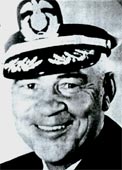 The President of the United States
takes Pleasure in Presenting the Merchant Marine Distinguished Service Medal
to
The President of the United States
takes Pleasure in Presenting the Merchant Marine Distinguished Service Medal
to Donald F.
Haviland*
Chief Engineer on SS Henry Bacon 02/23/45
In February 1945, SS Henry Bacon, an American Liberty Ship, in which Chief Engineer Haviland was serving, departed from Murmansk, North Russia, carrying Norwegian war refugees. A few days later during a heavy gale, the vessel was forced to drop out of Convoy RA-64 to effect repairs to her steering gear. The ship was then attacked by twenty-three German planes. The Henry Bacon shot down several planes and damaged others, but received one hit which caused her to founder. The lifeboats were filled with all of the Norwegians and some of the crew members, but could not accommodate all remaining personnel. When this situation became known to Chief Engineer Haviland, he insisted on climbing back on board ship giving his place in the lifeboat to a younger man. Shortly thereafter, he went down with the ship.
His unselfish action in sacrificing his life to save a shipmate constitutes a degree of heroism in keeping with the highest traditions of the United States Merchant Marine.
For the President
Admiral Emory Scott Land
Photo: "All They Had for Norway," Nautical Brass, March/April 1994.
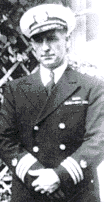 The
President of the United States takes Pleasure in Presenting the Merchant Marine
Distinguished Service Medal to
The
President of the United States takes Pleasure in Presenting the Merchant Marine
Distinguished Service Medal to Kenneth E.
Hayford
Chief Engineer on SS Harper's Ferry 07/20/44
For distinguished service in the line of duty.
SS Harper's Ferry was in an Italian port [Taranto] discharging high octane gasoline cargo over her starboard side through a pontoon pipe line, and simultaneously taking bunkers over her port side through a flexible hose line running from an oil barge to an open tank in the Harper's Ferry forward bunker. The crew of the oil barge failed to maintain lines, and the barge drifted away from the ship causing the oil line to pull out of the bunker opening. Before the barge pumps could be stopped, fuel oil flooded the tanker's deck and ran over the side near the barge. This overflow was ignited by sparks from the galley stack of the barge, and the flames spread rapidly over the deck of the Harper's Ferry.
In spite of the imminence of a devastating explosion of the tanker's gasoline cargo, Hayford, assisted by three members of his engine room crew, strung out three lines of fire hose and succeeded in forcing the flaming oil overboard and extinguishing all fires.
Chief Engineer Hayford's leadership in a situation demanding the highest degree of judgment and courage were in keeping with the finest traditions of the United States Merchant Marine.
For the President
Admiral Emory Scott Land
Photo courtesy of Paul Anderson of Indiana.
Otto Heitmann
Master of SS John Bascom 12/02/43
For distinguished service under unusual hazards and demands.
While his ship, SS John Bascom, was moored in the harbor of Bari, Italy, awaiting discharge orders, an intensive air raid, lasting an hour, sank numerous vessels. Secured alongside an ammunition-laden ship, which had been struck and its deck cargo ablaze, his first thought was to cut the lines and move into the outer harbor. This, however, proved futile as the sea had become a raging inferno. Shortly thereafter the John Bascom was strafed from stem to stern and, ablaze, began settling. Bridge and deck housing were completely wrecked, with one death resulting and serious injury to some hands.
With an injured back and bleeding profusely from head and hand lacerations he refused first aid, immediately proceeding to the medicine chest, assembling linen and ministering to the gravely injured. Stretchers were improvised from wrecked bulkheads, and, with great difficulty, the wounded men were taken ashore in a lifeboat. Two open shelters, already well crowded by other crews, accommodated them, only to be further jeopardized by the explosion of an ammunition ship close by, with flaming seas whipping inshore. Sensing this immediate danger he signaled a small Norwegian coastal steamer which took sixty men aboard. Twenty-five were then transferred to a British minesweeper, and later a U.S. Navy launch picked up the Master and the remaining men. He was then given hospital treatment.
Utter disregard of the painfully inflicted injuries in order to render immediate aid and comfort to his shipmates will be a lasting inspiration to all seamen, and was in keeping with the highest traditions of the United States Merchant Marine.
For the President
Admiral Emory Scott Land
Heitmann, 39 years old, lived in New York, NY
 The
President of the United States takes Pleasure in Presenting the Merchant Marine
Distinguished Service Medal to
The
President of the United States takes Pleasure in Presenting the Merchant Marine
Distinguished Service Medal to Alexander
S. Henry
Master of SS Deer Lodge 05/18/42
For distinguished service under unusual stress and hazards.
His vessel had completed delivery of vital war material to one of our Allies then hard pressed by a major enemy offensive, and was anchored in port [Kola Inlet, USSR] awaiting the formation of a homeward bound convoy. A flight of six enemy bombers attacked, dropping many bombs. One, a near miss, lifted the ship's stern bodily out of the water. The explosion blew in several plates and frames, and her stern immediately settled on the bottom. The Chief Engineer rushed below and closed the shaft alley watertight door which prevented the flooding of the engine room and boiler room.
The Master ordered flooding of the No. 1 hold which then put the ship down by the head and raised her stern off the bottom. She was beached stern to by her crew on a nearby mud flat, and wire hawsers made fast to huge boulders ashore. The ship was then hove ashore on top of high water by her own deck machinery. For two months, a period in which the crew were often called to defend themselves, or assist in the defense of the port against extensive enemy air activity, they effected temporary repairs between tides which enabled the ship to shift to drydock where she was again made seaworthy for active service.
His able leadership of a loyal and courageous crew constitutes an epic of resourcefulness and dogged determination which will be an enduring inspiration to seamen of the United States Merchant Marine everywhere.
For the President
Admiral Emory Scott Land
Henry was born in 1904 in Paisley, Scotland. He served in the U.S. Coast Guard for 3 years. Henry's closest relatives lived in Toronto, Ontario, Canada. Photo: Who's Who in the Maritime Industry.
Richard E.
Hocken
Master of SS William Moultrie 09/12/42
For distinguished service in the line of duty.
His ship, SS William
Moultrie, in a convoy [PQ-18] which suffered heavy losses, fought through
a week of continuous attacks by enemy bombers and submarines to deliver her
cargo of war material to a North Russian port. In the course of the long running
battle, the ship was directly attacked thirteen times and was credited with
downing eight planes, and with scoring direct hits on twelve others. During
the first attack on the convoy, the Moultrie distinguished herself by
shooting down three torpedo planes and damaged five. Later, after successfully
repelling another attack by planes, four torpedoes were sighted headed for
the stern of the Moultrie. The ship's guns fired upon them, exploding one,
and the other three were eluded by skillful seamanship.
Captain Hocken, Master of a gallant ship and a gallant crew, exhibited qualities of leadership and high courage in keeping with the finest traditions of the United States Merchant Marine.
For the President
Admiral Emory Scott Land
Hocken lived in New York City, NY.
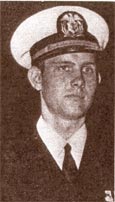 The
President of the United States takes Pleasure in Presenting the Merchant Marine
Distinguished Service Medal to
The
President of the United States takes Pleasure in Presenting the Merchant Marine
Distinguished Service Medal to James C. Huett
Radio Operator on SS William T. Coleman 07/20/43
For distinguished service in enemy action.
During the evening and throughout one night while the SS William T. Coleman was moored in company with several other ships in an African port [Tripoli], a concentrated air attack was made by strong formations of enemy aircraft. As the bombing and strafing commenced, a ship [SS Ocean Voyager] which was moored to the same buoy, and fast aft to Huett's ship, was hit. This, as well as his ship were loaded with ammunition and high octane gasoline. The stricken vessel was ablaze within a matter of seconds, her cargo of ammunition and bombs exploding in all directions. Immediately preparations were under way to slip moorings in order to stand clear of the burning vessel. Huett and a Cadet-Midshipman [Walter G. Sittmann] volunteered to cut the moorings aft. The stern of his vessel was but six feet from the blazing vessel and the extreme heat and exploding bombs made this mission extremely hazardous. Within minutes the volunteers had accomplished their mission enabling their ship to proceed to a safe distance from the burning vessel which soon blew up.
The magnificent courage and complete disregard for his own safety in helping save his ship, her cargo, and the lives of his shipmates constitute a degree of heroism which will be an enduring inspiration to seamen of the United States Merchant Marine.
For the President
Admiral Emory Scott Land
Huett lived in Boston MA. Photo: Who's Who in the Maritime Industry.
Karl W. Jaenicke
Master of SS West Hardaway 06/15/42
For distinguished service in the line of duty.
Two torpedoes were fired at SS West Hardaway, the first striking at No. 1 hatch on the starboard side, and the other a miss streaking across the bow ten yards ahead. Although the submarine did not surface, the gun crew immediately went into action firing five rounds at the wake of her conning tower, and two heavy explosions were observed indicating direct hits. During this firing the ship had been settling rapidly by the head, and Captain Jaenicke ordered her abandoned. After all boats were in the water and standing by, he observed that the ship had stopped settling, and he and his gun crew returned aboard in the hope that the submarine might come to the surface. Shortly thereafter, the wake of another submarine was sighted, and the gun crew again opened fire, but after an hour of pitched battle between the ship and the raider, another torpedo struck at No. 2 hatch and the entire forward deck collapsed inward. The crew once again abandoned ship in a most orderly manner. The Master then equalized his fifty men between the boats and headed for the nearest land which was reached in two days without the loss of a man.
Captain Jaenicke's determination to fight his ship until the end, and his capable leadership of a well trained crew were in keeping with the finest traditions of the United States Merchant Marine.
For the President
Admiral Emory Scott Land
Jaenicke lived in Philadelphia PA.
Ralph E. Jamieson
Chief Engineer on SS Saint Mihiel 04/09/45
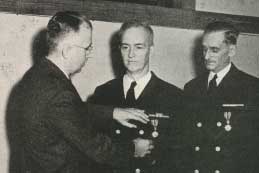
Ralph E. Jamieson receives DSM medal while William R. Rudolph looks on
For distinguished service under unusual hazards.
With a capacity cargo of high octane gasoline, the SS Saint Mihiel was rammed, in convoy, at night by another tanker [SS Nashbulk], and immediately became a raging inferno. Although orders had been given to abandon ship, Jamieson remained in the engine room for several hours afterwards and secured all equipment in such skillful manner that it greatly facilitated later operations. He left the vessel only under orders of the Coast Guard escort. At daybreak, while the ship was still on fire, he volunteered, together with fourteen other hands to reboard her. He succeeded in raising steam, and, by his expert handling of the machinery plant, assisted materially in bringing the badly damaged ship to port, where the smouldering fires were finally extinguished.
His devotion to duty and complete disregard of personal safety were mainly responsible for saving the ship and her valuable cargo, and are in keeping with the highest traditions of the United States Merchant Marine.
For the President
Admiral Emory Scott Land
Jamieson lived in New York NY.
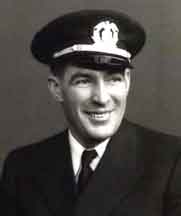 The
President of the United States takes Pleasure in Presenting the Merchant Marine
Distinguished Service Medal to
The
President of the United States takes Pleasure in Presenting the Merchant Marine
Distinguished Service Medal to Charles A.
Jarvis
Master of SS Adoniram Judson 10/24/44 to 10/29/44
For heroism in the line of duty.
His ship, SS Adoniram Judson, was the first United States merchant vessel to dock at Tacloban, Island of Leyte, during the initial invasion of the Philippines, and was subjected to unrelenting enemy air attacks. Her guns provided the principal air cover for the landing area for two days until joined by other ships participating in the campaign. The accurate and continuous gun fire which she maintained repeatedly repelled the vigorous enemy, during which action the unloading of her vital war material, including steel airfield landing mats, was successfully carried out. Captain Jarvis' courage, leadership and utter disregard of personal danger not only contributed greatly to the success of the invasion, but also to the safety of his ship and crew.
His outstanding performance was in keeping with the highest traditions of the United States Merchant Marine.
For the President
Admiral Emory Scott Land
SS
Adoniram Judson after-action reports submitted by Captain Jarvis
Jarvis was born
in St. Johns, Arizona Territory, Sept. 8, 1906 and moved to Port Angeles,
WA in 1915. [Photo courtesy Greg Hayden]
The President of the United States takes Pleasure in Presenting the Merchant Marine Distinguished Service Medal to
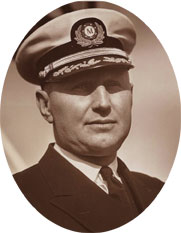 Elis R. Johanson
Elis R. Johanson
Master of SS Monterey 11/06/43
For distinguished service in action with the enemy.
In a night attack by enemy bombers, a troopship, [SS Santa Elena] carrying nearly 1,700 men, was torpedoed. In total darkness, and under most adverse weather conditions of wind, rain and heavy swell, Captain Johanson located the sinking transport, held his own ship close aboard, and, by means of his lifeboats, scramble nets, man-ropes and ladders, evacuated her crew and passengers in an outstanding display of seamanship and efficiency. The abandonment of the troopship and the rescue of her survivors were carried out with such dispatch that Captain Johanson's ship was able to clear the scene of action well before daylight, thereby avoiding further jeopardy from enemy aircraft or submarine.
These operations, carried out without loss of life or injury attributable to the rescue, were indicative of a well indoctrinated and highly trained ship, and distinguished Captain Johanson as an outstanding officer and a leader of men.
For the President
Admiral Emory Scott Land
Johanson's address was in San Francisco CA.
Arthur L.
Johnson*
Master of SS Virginia Dare 09/07 to 09/21/42
For distinguished service in the line of duty.
In September 1942, SS Virginia Dare, loaded with high explosives bound for Murmansk [Convoy PQ-18], fought off enemy submarines, dive bombers, and torpedo planes in a blazing battle lasting for seven days and nights. The ship was repeatedly subjected to numerous direct attacks which were successfully repelled. The accurate fire of the gun crew brought down seven of the attacking planes and inflicted damage on several others. On one occasion a Junkers 88 already in flames suddenly turned to crash dive into her bow, and was exploded by the ship's forward gun at point blank range of sixty yards. Later, while maneuvering through mine fields, the Master skillfully evaded two aerial torpedoes which were racing toward the ship.
Captain Johnson, Master of a gallant ship and a gallant crew exhibited qualities of leadership and high courage in keeping with the finest traditions of the United States Merchant Marine.
For the President
Admiral Emory Scott Land
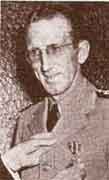 The
President of the United States takes Pleasure in Presenting the Merchant Marine
Distinguished Service Medal to
The
President of the United States takes Pleasure in Presenting the Merchant Marine
Distinguished Service Medal to Edward E.
Johnson
Master of SS Admiral Halstead 02/19/42 to 02/26/42
For distinguished service in the line of duty.
For eighteen months the ship in which he was serving operated in the Southwest Pacific under especially hazardous conditions, as it was at all times in the danger zone, was unescorted, and only lightly armed. In an attack on Port Darwin, [Australia] and on the nine succeeding days, when most of the crew had left the ship, he with his Captain and four officers and men, manned the two machine guns, and so successfully defended the ship that it was the only one of twelve merchant vessels in the harbor not destroyed. After the first attack, this small group protestingly left the ship upon orders of the military authorities, but subsequently returned, got underway, and took their ship out into the harbor each morning and returned to the dock each night to discharge cargo, so as not to endanger the dock during daylight. Because of the indomitable determination and courage of these six men, they succeeded in delivering the gasoline so vitally necessary to Army operations.
His loyalty to his ship and his devotion to duty have added another inspirational chapter to the history of the United States Merchant Marine.
For the President
Admiral Emory Scott Land
Johnson resided in Woodland, CA. Photo: Who's Who in the Maritime Industry.
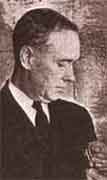 The
President of the United States takes Pleasure in Presenting the Merchant Marine
Distinguished Service Medal to
The
President of the United States takes Pleasure in Presenting the Merchant Marine
Distinguished Service Medal to Edwin E. Johnson
Master of SS Columbian 06/17/42
For distinguished service in the line of duty.
At dusk an enemy submarine was sighted on the horizon off the starboard bow. Course was immediately changed to put it astern, and various courses were set during the night to enemy's superior surface speed, and at midnight the submarine was sighted on the port bow heading directly for the ship and opening fire with all its deck guns as it came in. In an adept maneuver, the ship was swung bringing the submarine close astern. Then the order was given for hard left rudder to check the swing and the ship's stern chaser gun went into action The first shot was a direct hit just below the submarine's conning tower at point-blank range of not more than 200 yards. Quickly reloaded, the stern gun registered another hit. From then on there was no response from the submarine-- when last seen it was lying at right angles to the ship's course and settling low astern.
Captain Johnson's alert leadership and expert seamanship, so largely instrumental in saving his own ship and in seriously damaging the submarine, are in keeping with the highest traditions of the United States Merchant Marine.
For the President
Admiral Emory Scott Land
Johnson was born in Marshfield OR in 1888. Photo: Who's Who in the Maritime Industry.
Kyle Vaughn
Johnson*
Ordinary Seaman on SS Lafayette 09/07/42 to 09/21/42
For distinguished service in enemy action.
While his ship was enroute to a Russian port [Convoy PQ18] with a cargo of war material, he served as No. 1 gunner on a 20 mm Oerlikon and aided materially over a period of eight days in repelling a series of enemy aerial attacks. During this period, he was credited with shooting down three enemy planes and assisting in the destruction of two others. His coolness under attack, and the resulting accuracy of the fire of his gun, not only contributed immeasurably to the safety of his ship, but served as an inspiration to other members of the crew.
His courage and calm efficiency during these attacks were in keeping with the finest traditions of the United States Merchant Marine.
For the President
Admiral Emory Scott Land
Paul David
Jones*
Oiler on SS Bostonian (Panama flag) 8/14/44
For heroism beyond the line of duty.
A benzol gas leak in the pump-room of the tanker Bostonian was endangering the security of the ship and the safety of her crew. The Captain of the ship, refusing to order any of his seamen to undertake the hazardous task of stopping the leak, descended alone into the pump-room hatch. In his endeavors to plug the leak, his body became firmly wedged between a cargo pump and a valve wheel, and he succumbed to the deadly gases. Though fully aware that they were risking their own lives, Paul Jones and his brother volunteered to attempt his rescue. Turned back once by the searing gases, the brothers again descended, and Paul Jones succeeded in reaching the unconscious Captain. But in his valiant efforts to extricate the heavy body, Paul Jones succumbed to the deadly gases and lost his own life.
Though unsuccessful in his gallant endeavor, Jones unhesitatingly risked, and gave, his life in an attempt to save a shipmate. This constituted a degree of heroism in keeping with the highest traditions of the United States Merchant Marine.
For the President
Admiral Emory Scott Land
Lew Jordan
The President of the United States takes Pleasure in Presenting the Merchant Marine Distinguished Service Medal to
G. O. Karlsson*
Master of SS Stanvac Calcutta 04/12/42
For distinguished service in the line of duty.
When about 500 miles off the coast of Brazil, the Tanker, Stanvac Calcutta, was attacked by a heavily armed raider which came up close on her in a heavy squall. Though armed only with a 4" rifle aft and a 3" anti-aircraft gun, the Stanvac Calcutta tried to escape in a running fight. On the fifth round fired, the tanker's after gun knocked out one of the raider's 13 cm. guns, but the next round from the enemy shattered the pointer's scope and sight bar. The crew continued to fight the gun by laying without sights until the ammunition magazine was hit and the ship began to sink. With fourteen dead and fourteen seriously wounded, the crew was forced to abandon ship and were taken prisoners. Until he was killed at his post on the bridge, Captain Karlsson, with masterly seamanship, handled his ship so that his single effective gun could always be used to best advantage.
A gallant Master of a gallant ship, Captain Karlsson's courage and skill against overwhelming odds were in keeping with the highest traditions of the United States Merchant Marine.
For the President
Admiral Emory Scott Land
Elias Kershaw
The President of the United States takes Pleasure in Presenting the Merchant Marine Distinguished Service Medal to
Sigmond Charles
Krolikowski*
Master of SS Wolf Creek 09/45
For heroism beyond the line of duty.
The tanker Wolf Creek, under command of Captain Krolikowski, completed discharging high octane gasoline at Sydney, Australia, in September 1945. In order to operate necessary valves for clearing the gasoline hose, the First Pumpman descended to the lower grating in the pumproom and was immediately overcome by dangerous fumes. With great difficulty he was brought on deck and revived. After obtaining a fresh air breathing apparatus, the First Pumpman again descended to the pumproom and again was overcome by fumes. On this occasion, a Quartermaster, with oxygen breathing apparatus descended to the lower grating and carried the unconscious man to the upper grating, where he, himself, seemed about to collapse. The Master, who was watching, immediately went to assist him with no gas mask, no life line and no thought of his own safety. He and the Quartermaster both collapsed. Finally, after strenuous efforts, all three men were brought on deck and given artificial respiration. The Master, alone, failed to revive.
Captain Krolikowski's instructive effort to aid crew members in peril, resulting in the sacrifice of his own life, constitutes a degree of heroism in keeping with the highest traditions of the United States Merchant Marine.
For the President
Admiral Emory Scott Land
Mike Kuzma
Ordinary Seaman on SS Virginia 05/12/42
For heroism beyond the line of duty.
The tanker Virginia, struck by two enemy torpedoes, instantly exploded and the surrounding waters over a wide area were an inferno of burning gasoline. Only fourteen men survived the terrible death trap. Kuzma, though severely burned in the blast, swam through the flame swept water to the assistance of another badly burned seaman who had become exhausted in his heroic attempt to rescue a third shipmate. With complete disregard for his own safety, and in spite of his own injuries, Kuzma succeeded in towing both men out of the flaming area and in supporting them until they were picked up by a rescue craft.
His selfless and heroic deed, exemplifying the creed of the merchant seaman, was in keeping with the finest traditions of the United States Merchant Marine.
For the President
Admiral Emory Scott Land
Kuzma, born 1915, lived in St. Paul MN.
John J. Lapoint
Master of SS Potlatch 06/27/42
For especially meritorious service under unusual stress and hazards.
His ship was struck simultaneously by two torpedoes. Immediately the stern went under water, and the ship sank in three minutes. Only one twenty-six-foot lifeboat and four life-rafts from the rigging were successfully launched. The Master, caught in the suction of the sinking ship, was carried under twice by entangling rigging. Although painfully injured he fought his way to the surface. Taking command of the lifeboat he proceeded to pick up survivors in the water. The four liferafts were secured in line for towing by the lifeboat and a course calculated to fetch land was set. At the end of the second day, strong head winds and rough seas made it imperative to transfer all men to the lifeboat and cast the dragging rafts adrift.
The small boat, now crowded with all forty-nine survivors, sailed and drifted for twenty-six days before a landfall was made at night. Although carefully rationed, all food was exhausted by the fifteenth day. From then on the men subsisted almost entirely on berries garnered from passing seaweed and rainwater caught during the frequent squalls. A landing was made on what proved to be an uninhabited island, without food, and with only a brackish, sulphurous spring from which a new supply of water was taken. After a second night's rest the disheartened survivors again put to sea. On the morning of the thirty-third day a second landing was made this time on an inhabited island where food and water were obtained from the natives, It was from this island that the final rescue was effected. Throughout the many days in the crowded lifeboat, Captain Lapoint's control of the thirst and hunger-maddened men was firm but kind and undoubtedly was the means of saving many lives.
His good example and quiet mastery of a heavy and difficult responsibility will be an enduring inspiration to seamen of the United States Merchant Marine everywhere.
For the President
Admiral Emory Scott Land
Lapoint was from Baltimore, MD.
Frederick
A. Larsen, Jr.
Junior Third Mate on SS Santa Elisa 08/11 to 08/15/42
For heroism above and beyond the call of duty.
His ship was a freighter carrying drums of high-octane gasoline, one of two American ships, in a small British convoy to Malta. Orders were to "get through at all costs". Heavily escorted, the convoy moved into the Mediterranean, and before noon of that day the enemy's attack began. From then on the entire convoy was under constant attack from Axis planes and submarines. Assigned the command of an antiaircraft gun mounted on the bridge, Larsen contributed to the successful defense of his ship for three days. At 4:00 A.M. on the morning of the fourth day, torpedo boats succeeded in breaking through and two attacked from opposite sides. Sneaking in close under cover of the darkness one opened point-blank fire with four .50 caliber machine guns, sweeping the bridge. The other fired a torpedo into the opposite side of the freighter. The explosion of the torpedo ignited the gasoline cargo and the American ship was engulfed in flames. Reluctantly orders were given to abandon her.
Two hours later, the survivors were picked up by a British destroyer, which then proceeded to take in tow a tanker [SS Ohio] that had been bombed and could not maneuver. After five hours constant dive-bombing, the tanker was hit again--her crew abandoned her--and the destroyer was forced to cut her loose. But the cargo she carried was most important to the defense of Malta, and it had to get through. The rescue destroyer and another destroyer steamed in--lashed themselves on either side of the stricken tanker--and dragged her along in a determined attempt to get her to port. The tanker's decks and superstructure had been almost completely wrecked by the incessant bombardment.
But Larsen's anxiety to get into the fight caused him to take inventory of her armament. He found an anti-aircraft gun mounted abaft the stack which needed only minor repairs to put it into action. The young cadet of his own ship, a British gunner's mate, and three of his men volunteered help him. Though the ships were then constantly under attack, they boarded her, repaired the gun and manned it, with Larsen taking the trainer's position and the gunner's mate and the cadet alternating as pointers.
The shackled ships, inching along and making a perfect target, were assailed by concentrated enemy air-power. All that day wave after wave of German and Italian bombers dived at them and were beaten off by a heavy barrage. Bombs straddled them, scoring near misses, but no direct hits were made until noon the next day, when the tanker finally received a bomb down her stack which blew out the bottom of her engine room. Though she continued to settle until her decks were awash, they fought her through until dusk that day brought them under the protection of the hard fighting air force out of Malta.
The magnificent courage of this young third officer constitutes a degree of heroism which will be an enduring inspiration to seamen of the United States Merchant Marine everywhere.
For the President
Admiral Emory Scott Land
Larsen, 28 years old, was from Newark, NJ
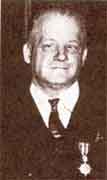
Arthur Lauman
Fireman on MS Esso Bolivar (Panama) 03/07/42
For extraordinary heroism and especially meritorious service under unusual hazards.
While his ship was under heavy shell fire and torpedo attack by an enemy submarine which caused fires above and below deck, he remained at his port in the fireroom despite the shattering of the room and its equipment by explosions. As one shell crashed through the smokestack casing, breaking off a ten-foot section of six-inch copper pipe and other smaller piping, pieces of steel hurtled into the lower fireroom. As another shell came through the fireroom casing and tore into the uptake, the room was sprayed with pieces of metal. When ordered at last by the Chief Engineer to report to his boat station, he was found calmly clearing the floor of debris in order to continue operations. With all exits afire, it was necessary for him to climb through the engine room skylights to get out on deck. Later, while in the water waiting to be picked up by a lifeboat, he helped another seaman to fight off sharks attacking a wounded member of the gun crew.
His extraordinary courage and fidelity to trust will be an enduring inspiration to seamen of the United States Merchant Marine everywhere.
For the President
Admiral Emory Scott Land
Lauman was from New York, NY. Photo: Who's Who in the Maritime Industry.
Joseph E. Layman*
Second Mate on SS Stephen Hopkins 09/27/42
For distinguished service in enemy action.
Two enemy surface raiders suddenly appeared out of the morning mist to attack the small merchantman upon which he was serving. Heavy guns of one raider pounded his ship, and machine guns from the other, sprayed her decks until she was a complete wreck and afire fore and aft. His ship exchanged shot for shot with the enemy raiders until the crew of one raider was forced to abandon its sinking ship, and the other was forced to withdraw. Layman, who was in charge of the two 37 mm guns forward, put shell after shell into the larger raider and courageously maintained the fire until all his shell handlers were killed and the gun platform wrecked. With her boilers blown up, engines destroyed, masts shot away, and ablaze from stem to stern, orders were finally given to abandon ship. The only serviceable lifeboat being overcrowded, Layman, unselfishly and heroically, remained on board and went down with his battered ship.
His fearless determination to fight his ship to the end, and his self-sacrifice constitute a degree of heroism which will be an enduring inspiration to seamen of the United States Merchant Marine everywhere.
For the President
Admiral Emory Scott Land
Walter Joseph
Lee
Second Mate on SS Independence Hall 03/07/42
For especially meritorious service under unusual demands and hazards.
The ship in which he was serving encountered heavy weather in dangerous waters near Sable Island, Nova Scotia. Wind and sea increased to gale force and after enduring severe battering for a prolonged period, the ship broke in two. The forward half of the vessel in which were all officers senior to Lee, drifted away and grounded nearby with the loss of all on board. Lee took charge of the after half of the ship which he skillfully maneuvered with the engines to lessen the strain and keep the ship stern to the sea as long as engine and fire-rooms were tenable. A jury antenna was rigged, S.O.S. sent out, and rescue ships advised of the ship's condition. Lee took every conceivable step to keep the wrecked half of the ship afloat, and to safeguard personnel until eventually taken off by British naval vessels in a most gallant rescue operation. Throughout this long period, Lee was faced with responsibilities far greater than he had previously experienced. He met each crisis with cool and calm efficiency and contributed in large measure to the successful rescue of the thirty-seven survivors.
His extraordinary achievement and exemplary leadership will be an enduring inspiration to seamen of the United States Merchant Marine everywhere.
For the President
Admiral Emory Scott Land
Lee, 45 years old, was from Oswego, NY

Loy Lemons
Ordinary Seaman on SS Dixiano
For heroism beyond the line of duty.
His ship, SS Dixiano, was undergoing repairs to a hole in the way of her No. 1 starboard tank. Two repairmen, welding a doubler plate on the inside of the hole, were overcome by gases, and the ship's Second Mate, who had descended to their rescue, was also overcome in the attempt. With three men already unconscious from the deadly fumes, Lemons had himself lowered at the end of a line to their rescue. Almost instantly he too collapsed, and was hauled to the deck. Regaining consciousness, he again re-entered the tank, and succeeded in securing a line to one of the men before he collapsed for the second time. Hauled to the deck, he again regained consciousness, and again was lowered away into the tank. On this attempt he succeeded in securing lines to the other two men before he, for the third time, lost consciousness in his determinedly heroic endeavors.
Although the three stricken men succumbed to the deadly gases, the temper of Loy Lemons' courage in thrice facing death in his rescue attempts was in keeping with the finest traditions of the United States Merchant Marine.
For the President
Admiral Emory Scott Land
Photo: Who's Who in the Maritime Industry.
Bjarne A. Lia*
Master of SS Bostonian 08/14/44
For heroism beyond the line of duty.
A benzol gas leak in the pump-room of the tanker Bostonian was endangering the security of the ship and the safety of her crew. Captain Lia, aware that no protective equipment would avail against the searing and poisonous heavy vapors, refused to permit any of his crew to undertake the hazardous task of stopping the leak, and descended alone into the pump-room hatch. In his endeavors to plug the leak, his body became wedged in the narrow space between a cargo pump and a valve wheel, and though valiant attempts were made to rescue him, he succumbed to the deadly gases.
In accepting a risk he would not permit any of his crew to take, Captain Lia assured the security of his ship at the sacrifice of his own life. This constituted a degree of heroism in keeping with the highest traditions of the United States Merchant Marine.
For the President
Admiral Emory Scott Land
Lia was born in 1900.
John Lund
Master of SS Pan Maryland 01/20/44
For distinguished service under unusual hazards.
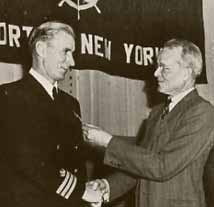 During
a midwinter storm, with extreme heavy seas and northerly winds Force 8, a
Norwegian tanker broke in half. Three ships responded; two of foreign flags,
and the American ship commanded by Captain Lund. Repeated attempts by all
three ships to get lines aboard the wreck proved unsuccessful, and the seas
and winds made launching of lifeboats from the rescue ships impossible. While
these operations were going on, the forward half sank. With the coming of
darkness that day, the two foreign flag ships steamed on, but the American
ship stood by cruising in large circles around the stern half of the wreck
in the hope that the sea and wind might moderate sufficiently to permit rescue
operations. About ten-thirty that night the wind eased off, and Captain Lund
closed in on the wreck and signaled her to launch a boat in the lee which
he would provide. After several attempts fourteen men were taken off, and
the remaining thirteen men rescued about an hour later.
During
a midwinter storm, with extreme heavy seas and northerly winds Force 8, a
Norwegian tanker broke in half. Three ships responded; two of foreign flags,
and the American ship commanded by Captain Lund. Repeated attempts by all
three ships to get lines aboard the wreck proved unsuccessful, and the seas
and winds made launching of lifeboats from the rescue ships impossible. While
these operations were going on, the forward half sank. With the coming of
darkness that day, the two foreign flag ships steamed on, but the American
ship stood by cruising in large circles around the stern half of the wreck
in the hope that the sea and wind might moderate sufficiently to permit rescue
operations. About ten-thirty that night the wind eased off, and Captain Lund
closed in on the wreck and signaled her to launch a boat in the lee which
he would provide. After several attempts fourteen men were taken off, and
the remaining thirteen men rescued about an hour later.
Captain Lund's heroic rescue of twenty-seven doomed seamen, and the exemplary seamanship displayed in effecting this rescue, are in keeping with the finest traditions of the United States Merchant Marine.
For the President
Admiral Emory Scott Land
Photo: American Seamen: About Men of the Merchant Marine, Winter 1944.
Richard G. Matthiesen*
Ordinary Seaman on SS Marcus Daly 12/10/44
For heroism beyond the call of duty
During the initial invasion of the Philippine Islands at Tacloban, Leyte, the SS Marcus Daly, in which Matthiesen was serving, carried troops and vital war material and, with two other vessels, afforded the principal defenses of the port for several days. During six days and nights of incessant fighting, while troops were being disembarked and her cargo safely discharged, the vessel was at times the only fire power defending the vital Leyte docks. Matthiesen volunteered and served as a member of the forward gun crew which distinguished itself during countless attacks by repulsing the enemy and bringing down many planes.
Two months later, on a subsequent arrival in the Philippines, this same vessel was again attacked by enemy bombers. Again Matthiesen served as a volunteer member of the gun crew during the engagement in which his ship shot down several Japanese aircraft. One of these bombers, after being hit, crashed and exploded under the forward gun platform, where Matthiesen was serving. Despite injuries and severe burns he escaped from the platform, but realizing that two members of the Navy gun crew remained behind, he returned through the intense heat and rescued them from the flames. The following morning Matthiesen died from the resulting burns and other injuries. [Buried Manila American Cemetery Location L-10-36]
His indomitable courage and unselfish impulse to go to the aid of shipmates in peril were in keeping with the highest traditions of the United States Merchant Marine.
For the President
Admiral Emory Scott Land
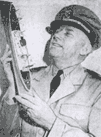 The President
of the United States takes Pleasure in Presenting the Merchant Marine Distinguished
Service Medal to
The President
of the United States takes Pleasure in Presenting the Merchant Marine Distinguished
Service Medal to John A. Mattson
Master of SS Coast Farmer 07/20/42
For distinguished service under the unusual stress and hazards.
Arriving in Australia shortly after the Japanese attacks on Manila, he and his crew volunteered to carry vital war material to the beleaguered forces on Bataan. Loaded with high explosives and armed only with two light machine guns, they set out into a typhoon upon a voyage, which none who saw them sail, thought neither ship nor crew would survive. At a time when huge Japanese convoys were coming south through Molucca Straits, he pushed his ship northward; by day, through channels considered too dangerous for navigation; by night, under forced draft along the edges of open waters often within sight of enemy craft.
On two nights enemy ships were passed within hailing distance. On another night floating mines were evaded by sharp lookout and masterful maneuvering. Making its secret port of call, the ship was discharged by night, and set out upon its return voyage with a valuable cargo of tin. But this was not the end of this gallant ship's service to her country at a time of great need. Two more voyages were made to advanced bases where the ship was subjected to savage bombing attacks. Riddled by gunfire, dented and holed by shrapnel beyond temporary repair, it finally became imperative to send her to a drydock in a South Australian port. Within a day and a half of her destination, she was torpedoed and sunk.
With full knowledge of the hazards involved, he and his crew performed special missions of outstanding importance to our fighting forces. His able leadership of a valiant crew, and his masterful exhibition of seamanship will be an enduring inspiration to seamen of the United States Merchant Marine everywhere.
For the President
Admiral Emory Scott Land
Photo: Oakland, CA Tribune, May 7, 1943.
 The
President of the United States takes Pleasure in Presenting the Merchant Marine
Distinguished Service Medal to
The
President of the United States takes Pleasure in Presenting the Merchant Marine
Distinguished Service Medal to Morgan A. Maxey
Master of SS Cedar Mills 12/01/43
For distinguished service beyond the line of duty.
Escorted by a French cruiser, [Le Triumphant] his tanker and the cruiser were caught in a violent cyclone, and became widely separated. The cruiser, running out of fuel and unable to maneuver, was in a sinking condition with a forty-five degree list when the tanker picked up her distress call. Against mountainous seas and a Force 12 wind, she fought through to the other ship's assistance. Too rough to launch lifeboats, preparations were first made to take off the cruiser's 250 men by life line. After distributing oil on the weather side of the stricken ship to still the seas breaking over her decks, the wind providentially broke to Force 8 and Captain Maxey decided to attempt the rescue with lifeboats. Two boats were launched, but when they approached the cruiser, her heavy roll in the high seas prevented them from closing in, and her men were forced to jump into the seas from whence they were hauled into the boats. In two days about half of the men had been rescued, when the seas moderated to a degree which held hope that the cruiser might also be saved. A tow line was taken aboard and the tanker proceeded to tow the man-o-war until, five days later, rendezvous was made with a British man-o-war which relieved the tanker of her tow.
Captain Maxey's fine leadership; his indomitable will to win over all obstacles; and his outstanding exhibition of seamanship are in keeping with the highest traditions of the United States Merchant Marine.
For the President
Admiral Emory Scott Land
Photo: Who's Who in the Maritime Industry.
Kenneth W. Maynard
Radio Operator on SS China Arrow 02/05/42
For heroism and distinguished service under unusual hazards.
The tanker upon which he was serving was carrying fuel to our Eastern seaboard. Without warning, two torpedoes in quick succession exploded in the main tanks. The force of the explosion blew the cargo expansion trunks through the main deck hatches and large quantities of the inflammable cargo were thrown high into the air. The oil rained back upon the ship, became ignited, and the entire open space blown through the after deck became a blazing inferno. Orders to abandon ship were given when it became apparent that the submarine was preparing to shell the stricken ship, but the Master and Radio Operator remained aboard to rig a jury antenna and set up an emergency short wave transmitter to replace the standard equipment, which had been wrecked by the explosions.
Heedless of personal risk from flame and shell fire, the two men worked furiously for three-quarters of an hour and finally, by the grace of ingenuity and spare parts, the emergency radio rig was completed and a continuous call distress signal was sent out. As the ship's radio receivers had also been wrecked by the explosions, the call was sent "blind", however, shore stations fixed the ship's position by triangulation and rescue of the entire crew was effected 56 hours after the attack.
Radio Operator Maynard's self-sacrificing courage and high devotion to duty, contributory to the speedy rescue of his shipmates constitute qualities of service which will be an enduring inspiration to seamen of the United States Merchant Marine everywhere.
For the President
Admiral Emory Scott Land
Maynard, 22 years old, started with the Civilian Conservation Corps
Van Rutherford
McCarthy
Chief Mate on SS Jeremiah Wadsworth 11/27/42
For distinguished service under unusually hazardous conditions.
In abandoning ship after it had been torpedoed in the Indian Ocean, he was in charge of one of the lifeboats and for six days and nights, with only six hours sleep, he remained at the helm and skillfully handled the lifeboat. At all times he was extremely solicitous of his men's strength, comfort and mental attitude, and was constantly encouraging them. By expert seamanship during the entire period in the lifeboat, and especially during a gale which lashed the sea for sixty-three hours, he managed to keep his boat afloat and thus saved its occupants.
His concern over the physical and mental attitude of the crew, his leadership, and superb seamanship were highly commendable and in keeping with the finest traditions of the United States Merchant Marine.
For the President
Admiral Emory Scott Land
Bertram E. McDowell*
Wiper on SS Virginia 05/12/42
For heroism beyond the call of duty.
When the first torpedo hit his ship, the SS Virginia, the platform in the engine room, on which McDowell and the Second Assistant Engineer were standing, buckled and the officer was trapped. Refusing to leave him, McDowell courageously struggled until he had freed his shipmate and dragged him clear. Upon reaching the main deck, he encountered another shipmate who had been injured - gave him his own life jacket - and then, with utter disregard of his own safety, went below for extra clothing for this man. It was while on this mission that the second and third torpedoes hit the ship in quick succession and spread burning gasoline over the ship and on the surrounding water. In assisting this man over the side, McDowell received serious burns which subsequently proved fatal. Even after jumping into the flame-swept water, and despite his injuries, he assisted in holding up another of his injured shipmates.
His heroic actions in risking, and subsequently giving, his own life while assisting three shipmates were in keeping with the finest traditions of the United States Merchant Marine.
For the President
Admiral Emory Scott Land
Daniel J. McKenzie
Master of SS Independence Hall 10/17/39
For especially meritorious service under unusual stress and hazards.
The ship of which Captain McKenzie was master picked up the S.O.S. of a torpedoed British ship, while en route from Bordeaux to the United States, shortly after outbreak of war in Europe. Proceeding to the stricken vessel, he received an S.O.S. from a second torpedoed ship, almost on his course. Coming first to the scene of the second torpedoing, Captain McKenzie saw the doomed vessel buckle amidships and sink. Ordering a boat lowered into a rough and choppy sea, the Captain directed the rescue of a number of persons clinging to wreckage and many more who were adrift in overcrowded lifeboats. Seventy-three persons were taken on board.
On arrival at the scene of the first torpedoing after nightfall, with life-saving material gathered on the hatches, cargo nets and ladders in readiness, and cluster lights rigged, Captain McKenzie and his crew within two hours took two hundred and twenty-seven survivors on board. They included many sick and wounded officers and men of the British Army, with their wives and children, and a number of terrified and panic stricken East Indian sailors.
His able leadership of a gallant crew in effecting the rescue and safe landing of 300 survivors by a small cargo ship will be an enduring inspiration to seamen of the United States Merchant Marine everywhere.
For the President
Admiral Emory Scott Land
Daniel J. McKenzie was from Washington, DC. Award presented February 11, 1943. The two British ships were the City of Mandalay and the Yorkshire.
 The
President of the United States takes Pleasure in Presenting the Merchant Marine
Distinguished Service Medal to
The
President of the United States takes Pleasure in Presenting the Merchant Marine
Distinguished Service Medal to  The
President of the United States takes Pleasure in Presenting the Merchant Marine
Distinguished Service Medal to
The
President of the United States takes Pleasure in Presenting the Merchant Marine
Distinguished Service Medal to 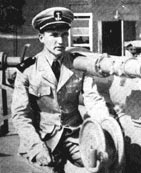 The
President of the United States takes Pleasure in Presenting the Merchant Marine
Distinguished Service Medal to
The
President of the United States takes Pleasure in Presenting the Merchant Marine
Distinguished Service Medal to  The
President of the United States takes Pleasure in Presenting the Merchant Marine
Distinguished Service Medal to
The
President of the United States takes Pleasure in Presenting the Merchant Marine
Distinguished Service Medal to 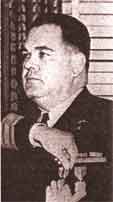 The
President of the United States takes Pleasure in Presenting the Merchant Marine
Distinguished Service Medal to
The
President of the United States takes Pleasure in Presenting the Merchant Marine
Distinguished Service Medal to  The
President of the United States takes Pleasure in Presenting the Merchant Marine
Distinguished Service Medal to
The
President of the United States takes Pleasure in Presenting the Merchant Marine
Distinguished Service Medal to  The
President of the United States takes Pleasure in Presenting the Merchant Marine
Distinguished Service Medal to
The
President of the United States takes Pleasure in Presenting the Merchant Marine
Distinguished Service Medal to 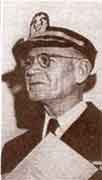 The
President of the United States takes Pleasure in Presenting the Merchant Marine
Distinguished Service Medal to
The
President of the United States takes Pleasure in Presenting the Merchant Marine
Distinguished Service Medal to 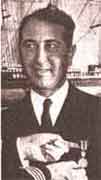 The
President of the United States takes Pleasure in Presenting the Merchant Marine
Distinguished Service Medal to
The
President of the United States takes Pleasure in Presenting the Merchant Marine
Distinguished Service Medal to  The
President of the United States takes Pleasure in Presenting the Merchant Marine
Distinguished Service Medal to
The
President of the United States takes Pleasure in Presenting the Merchant Marine
Distinguished Service Medal to 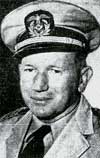 The President of the United States takes Pleasure
in Presenting the Merchant Marine Distinguished Service Medal to
The President of the United States takes Pleasure
in Presenting the Merchant Marine Distinguished Service Medal to  At midnight,
in a heavy storm, SS Uruguay with 4,700 troops aboard, was rammed by a tanker
in the same convoy. The bow of the tanker penetrated thirty-eight feet into
the troopship creating a gaping hole seventy feet wide and from keel to A
deck. Thirteen soldiers were killed in the crash; and more than fifty injured
soldiers were trapped in the wreckage. Captain Spaulding and his First Officer,
with complete disregard for their own safety, descended into the damaged area,
and, with the exercise of high courage and resourcefulness, succeeded in extricating
and rescuing the injured and trapped men.
At midnight,
in a heavy storm, SS Uruguay with 4,700 troops aboard, was rammed by a tanker
in the same convoy. The bow of the tanker penetrated thirty-eight feet into
the troopship creating a gaping hole seventy feet wide and from keel to A
deck. Thirteen soldiers were killed in the crash; and more than fifty injured
soldiers were trapped in the wreckage. Captain Spaulding and his First Officer,
with complete disregard for their own safety, descended into the damaged area,
and, with the exercise of high courage and resourcefulness, succeeded in extricating
and rescuing the injured and trapped men. The
President of the United States takes Pleasure in Presenting the Merchant Marine
Distinguished Service Medal to
The
President of the United States takes Pleasure in Presenting the Merchant Marine
Distinguished Service Medal to 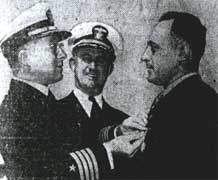 The President of the United States takes Pleasure
in Presenting the Merchant Marine Distinguished Service Medal to
The President of the United States takes Pleasure
in Presenting the Merchant Marine Distinguished Service Medal to 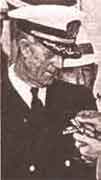 The
President of the United States takes Pleasure in Presenting the Merchant Marine
Distinguished Service Medal to
The
President of the United States takes Pleasure in Presenting the Merchant Marine
Distinguished Service Medal to  The
President of the United States takes Pleasure in Presenting the Merchant Marine
Distinguished Service Medal to
The
President of the United States takes Pleasure in Presenting the Merchant Marine
Distinguished Service Medal to 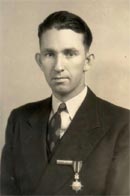 The
President of the United States takes Pleasure in Presenting the Merchant Marine
Distinguished Service Medal to
The
President of the United States takes Pleasure in Presenting the Merchant Marine
Distinguished Service Medal to 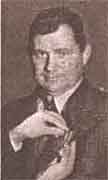 The
President of the United States takes Pleasure in Presenting the Merchant Marine
Distinguished Service Medal to
The
President of the United States takes Pleasure in Presenting the Merchant Marine
Distinguished Service Medal to 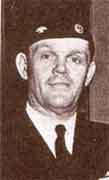 The
President of the United States takes Pleasure in Presenting the Merchant Marine
Distinguished Service Medal to
The
President of the United States takes Pleasure in Presenting the Merchant Marine
Distinguished Service Medal to 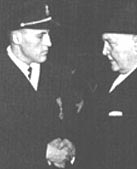 The
President of the United States takes Pleasure in Presenting the Merchant Marine
Distinguished Service Medal to
The
President of the United States takes Pleasure in Presenting the Merchant Marine
Distinguished Service Medal to 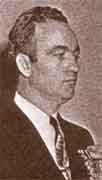 The
President of the United States takes Pleasure in Presenting the Merchant Marine
Distinguished Service Medal to
The
President of the United States takes Pleasure in Presenting the Merchant Marine
Distinguished Service Medal to 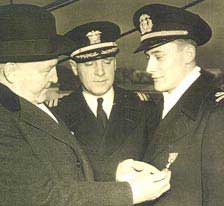 The President of the United States
takes Pleasure in Presenting the Merchant Marine Distinguished Service Medal
to
The President of the United States
takes Pleasure in Presenting the Merchant Marine Distinguished Service Medal
to 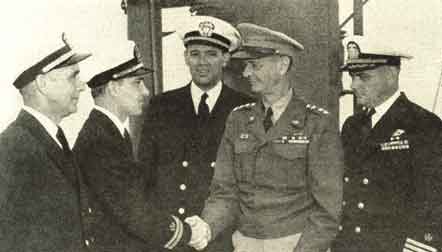
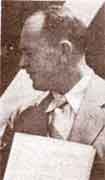 The
President of the United States takes Pleasure in Presenting the Merchant Marine
Distinguished Service Medal to
The
President of the United States takes Pleasure in Presenting the Merchant Marine
Distinguished Service Medal to  The
President of the United States takes Pleasure in Presenting the Merchant Marine
Distinguished Service Medal to
The
President of the United States takes Pleasure in Presenting the Merchant Marine
Distinguished Service Medal to 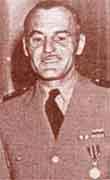 The
President of the United States takes Pleasure in Presenting the Merchant Marine
Distinguished Service Medal to
The
President of the United States takes Pleasure in Presenting the Merchant Marine
Distinguished Service Medal to 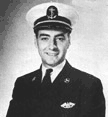 The
President of the United States takes Pleasure in Presenting the Merchant Marine
Distinguished Service Medal to
The
President of the United States takes Pleasure in Presenting the Merchant Marine
Distinguished Service Medal to